The word blaxploitation is derived from the words black and exploitation.
It was a film genre that emerged in the 1970s, often depicting Black people as being exploited by white authority figures and/or police officers.
The films were usually low-budget productions with stereotypical portrayals of African Americans, an exaggerated focus on sex and violence, including drugs to make it seem more “ghetto,” rapping for no reason other than its connection to hip hop culture or scenes including Black Power symbols.
BEST BLAXPLOITATION MOVIES
What Are Blaxploitation Movies?
Blaxploitation is a genre of films from the 1970s that featured African American actors in lead or supporting roles.
These movies were not only an economic response to white-dominated Hollywood but also served as a form of social and cultural protest against racism.
The Blaxploitation era began with Sweet Sweetback’s Baadasssss Song (1971), which was written and directed by Melvin Van Peebles.
The film tells the story of a young black man who starts out as an unemployed ex-convict and eventually becomes a pimp after being introduced to drugs by his girlfriend, played by Vonetta McGee, who works for her mother, Madame Tricksy (played by Estelle Evans).
Best Blaxploitation Movies
Best Blaxploitation Movies – The List
Let’s jump right into our list with a cult classic.
Blackenstein (1973)
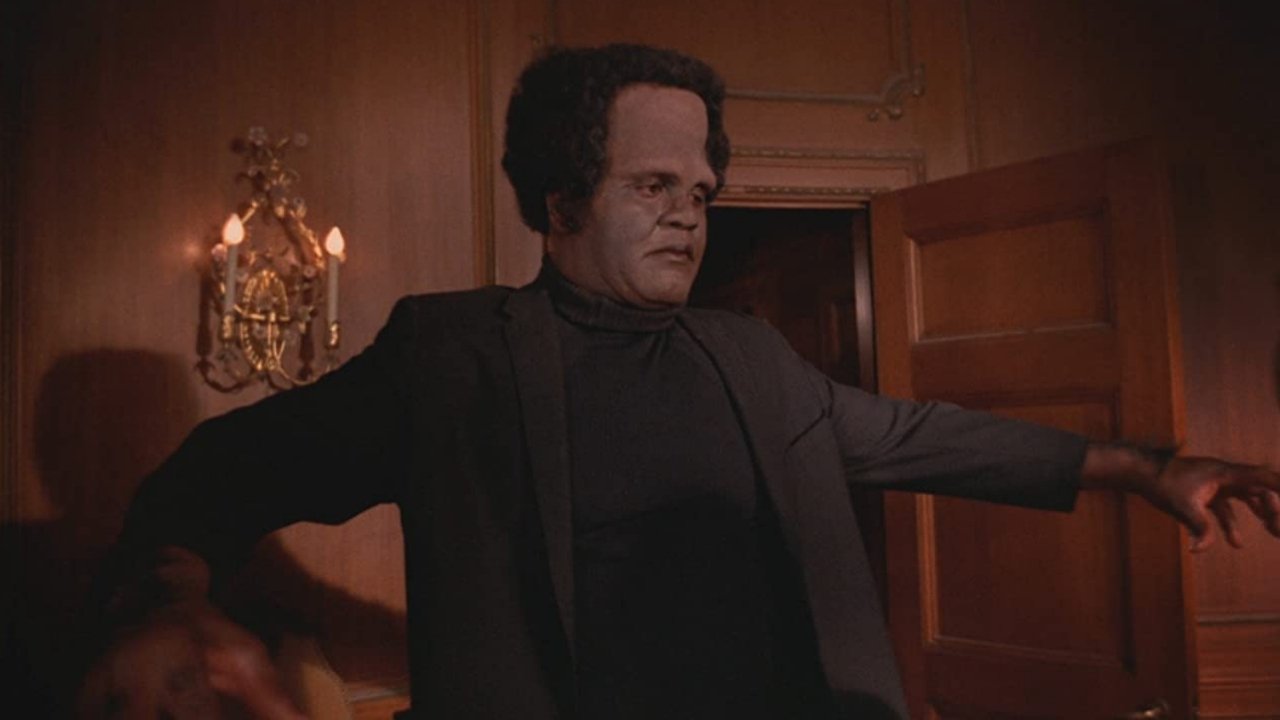
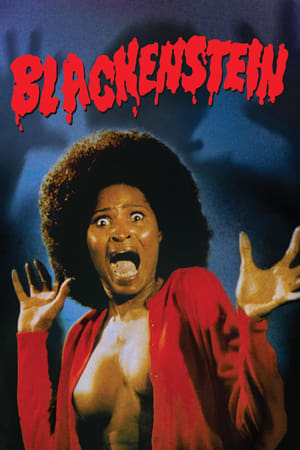
Blackenstein
To Stop This Mutha Takes One Bad Brutha
1973 • 1h 27min • ★ 3.1/10 • United States of America
Directed by: William A. Levey
Cast: Ivory Stone, Joe De Sue, Roosevelt Jackson, Andrea King, Nick Bolin
Eddie is a Vietnam veteran who loses his arms and legs when he steps on a land mine, but a brilliant surgeon is able to attach new limbs. Unfortunately an insanely jealous assistant (who has fallen in love with Eddie's fiance) switches Eddie's DNA injections, transforming him into a gigantic killer.
Blackenstein is a film that is hard to classify. On one hand, it is an interesting take on the classic Frankenstein story, with a unique and daring twist.
On the other hand, it is a film that is plagued by poor execution and a lack of focus.
The story follows Dr. Winifred Walker (Ivory Stone) as she attempts to use her experimental techniques to heal her Vietnam veteran fiancé Eddie (Joe De Sue) who lost his limbs in combat.
However, things go awry when her assistant (John Hart) injects Eddie with an experimental serum that turns him into a monster.
The film is clearly trying to tackle issues of race and disability, but it falls short in its execution.
The makeup and special effects used to transform Eddie into Blackenstein are subpar at best, and the pacing of the film is slow and disjointed.
That being said, there are some redeeming qualities to the film. Ivory Stone gives a solid performance as the determined Dr. Walker, and the film’s score is surprisingly effective at setting a mood of tension and unease.
In the end, Blackenstein is a film that is worth watching for its unique take on the Frankenstein story and its attempt to tackle complex issues of race and disability.
- Amazon Prime Video (Video on Demand)
- John Hart, Ivory Stone, Joe De Sue (Actors)
- William Levey (Director) - Frank Saletri (Writer) - Frank Saletri (Producer)
- English, Spanish, French (Playback Language)
- English, Spanish, French (Subtitles)
Blacula (1972)
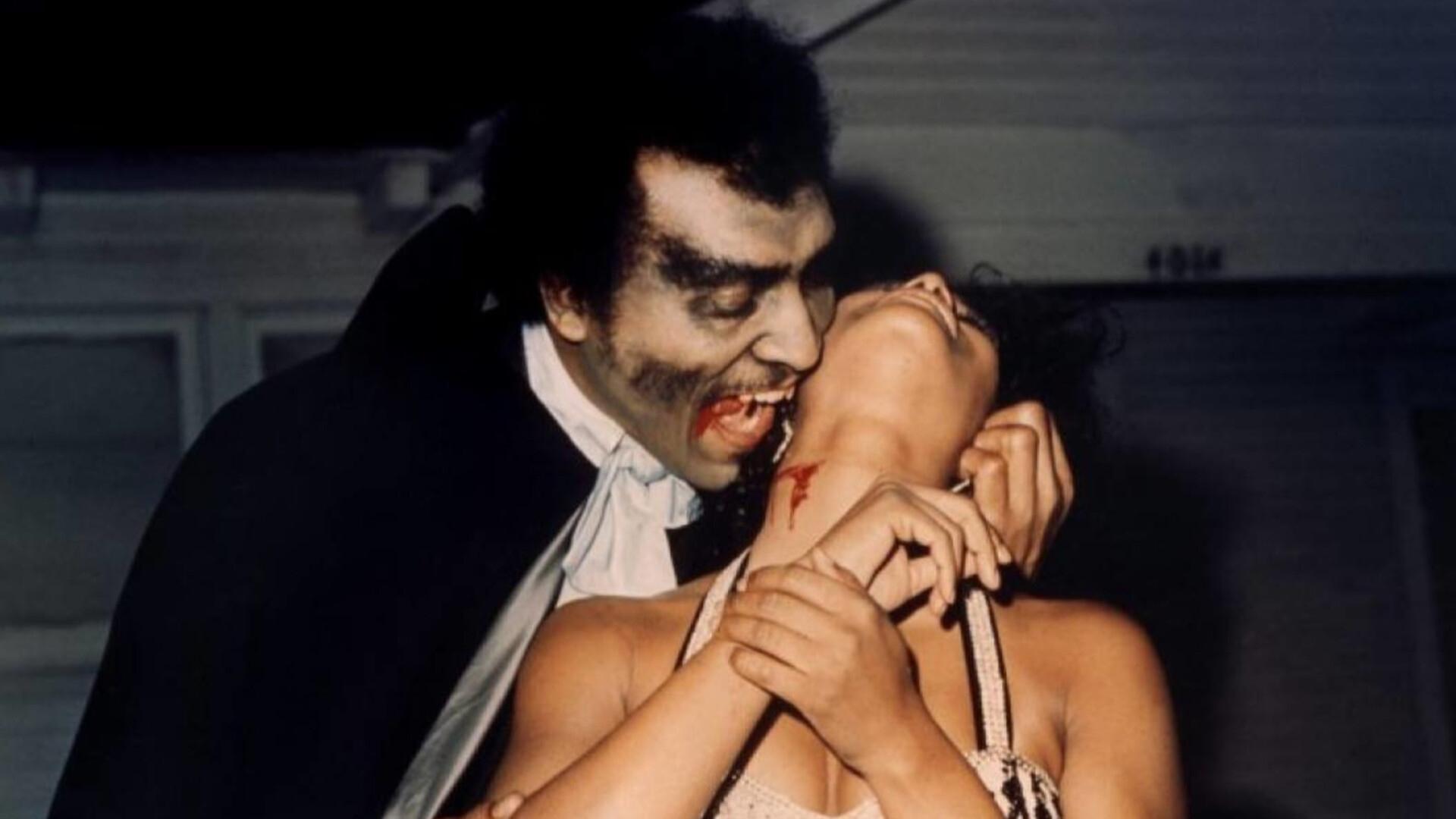
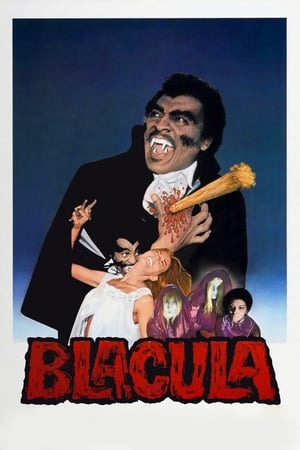
Blacula
Blacula! - Dracula's Soul Brother!
1972 • 1h 33min • ★ 5.46/10 • United States of America
Directed by: William Crain
Cast: William Marshall, Vonetta McGee, Denise Nicholas, Thalmus Rasulala, Gordon Pinsent
An 18th century African prince is turned into a vampire while visiting Transylvania. Two centuries later, he rises from his coffin attacking various residents of Los Angeles and meets Tina, a woman who he believes is the reincarnation of his deceased wife.
Blacula is a must-see classic for any fan of the horror genre.
William Marshall gives a commanding performance as the titular character, delivering his lines with gravitas and intensity.
The film is a clever mix of horror and blaxploitation, with a funky soundtrack that perfectly captures the mood of the era.
The production design is also top-notch, with the Gothic architecture of the 18th century castle serving as a stunning backdrop for the film’s eerie and suspenseful moments.
The film’s themes of love, identity, and power are explored in a way that feels both timely and timeless, making Blacula a standout film in the genre.
No products found.
Petey Wheatstraw (1977)
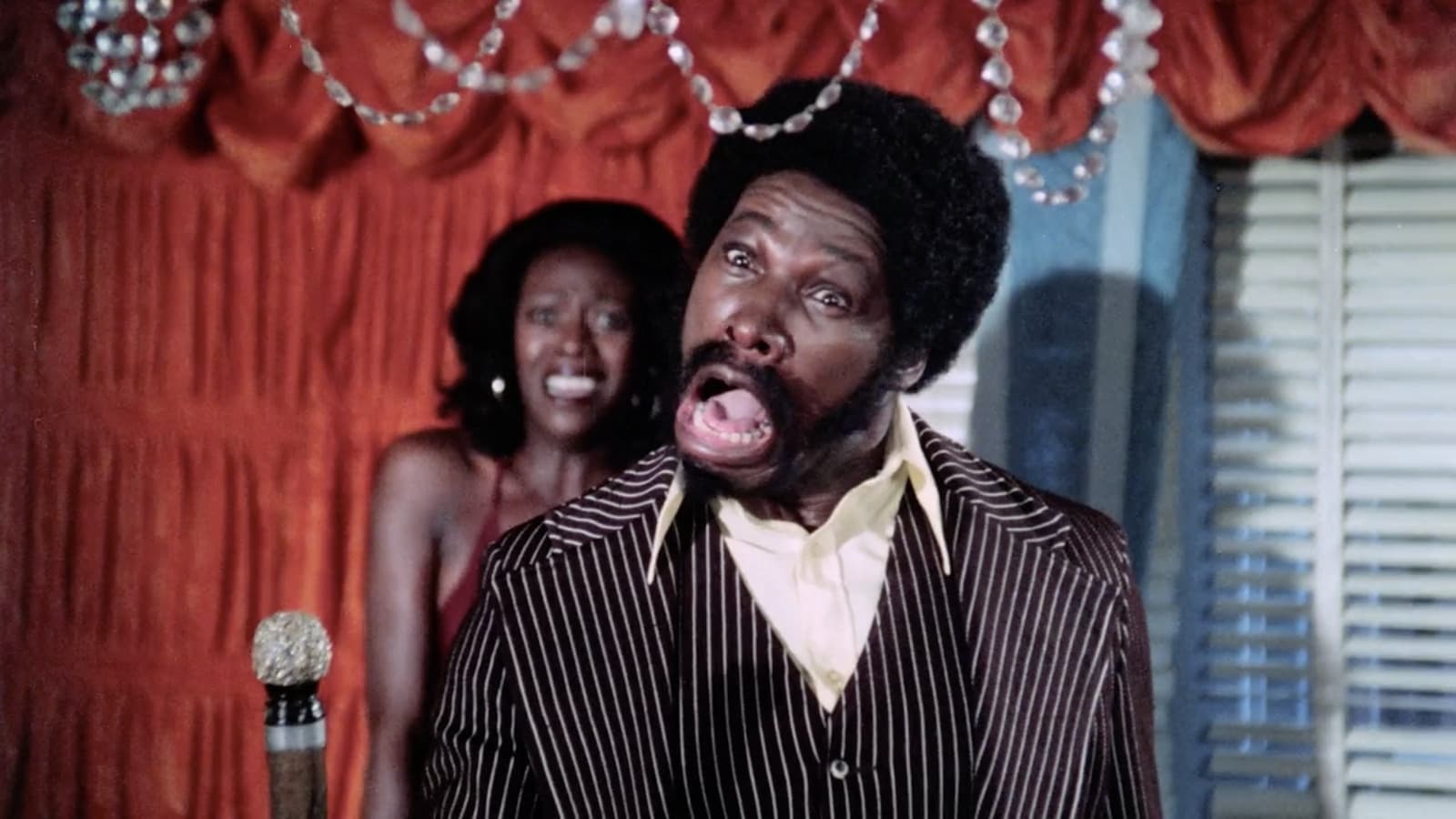
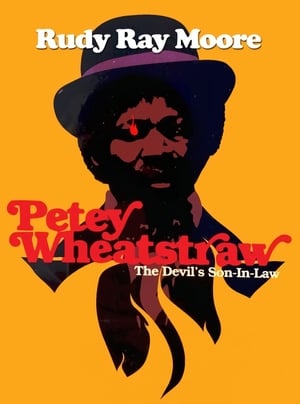
Petey Wheatstraw
Have No Fear, It's the Comedy Smash of the Year!
1977 • 1h 39min • ★ 5.333/10 • United States of America
Directed by: Cliff Roquemore
Cast: Rudy Ray Moore, Jimmy Lynch, Leroy Daniels, Ernest Mayhand, Ebony Wright
Petey Wheatstraw is a candidate to become the devil's son-in-law. The storyline is a scaffolding on which Rudy Ray Moore's standup humor can be unfolded. Beginning life as the afterbirth to a watermelon, the young Wheatstraw becomes a martial artist, but is unable to best the evil comedy team of Leroy and Skillet, who also indulge in wholesale murder. Satan restores the comedians' victims to life, and charges Petey with the task of marrying his clock-stoppingly ugly daughter to give him a grandchild. When Petey attempts to default on the deal, he is pursued by the devil's henchmen.
Petey Wheatstraw is a wild and wacky ride that will leave you gasping for air.
This Blaxploitation classic from director Cliff Roquemore stars the legendary Rudy Ray Moore as a stand-up comedian who makes a pact with the devil to become the greatest comedian in the world.
The film is a perfect showcase for Moore’s unique blend of humor, wit, and irreverence, and his performance as the titular Petey Wheatstraw is nothing short of iconic.
The supporting cast is equally impressive, with notable performances from Jimmy Lynch, Leroy Daniels, and Ernest Mayhand.
The plot is a bit convoluted, with several subplots and twists that can be hard to follow at times. However, the film’s sheer energy and enthusiasm more than make up for any narrative shortcomings.
The action sequences are over-the-top and ridiculous in the best way possible, and the film’s soundtrack is a funky delight.
- Amazon Prime Video (Video on Demand)
- Jimmy Lynch, Rudy Ray Moore, Ebony Wryte (Actors)
- Cliff Roqumore (Director) - Rudy Ray Moore (Writer) - Theodore Toney (Producer)
- English (Playback Language)
- English (Subtitle)
That Man Bolt (1973)
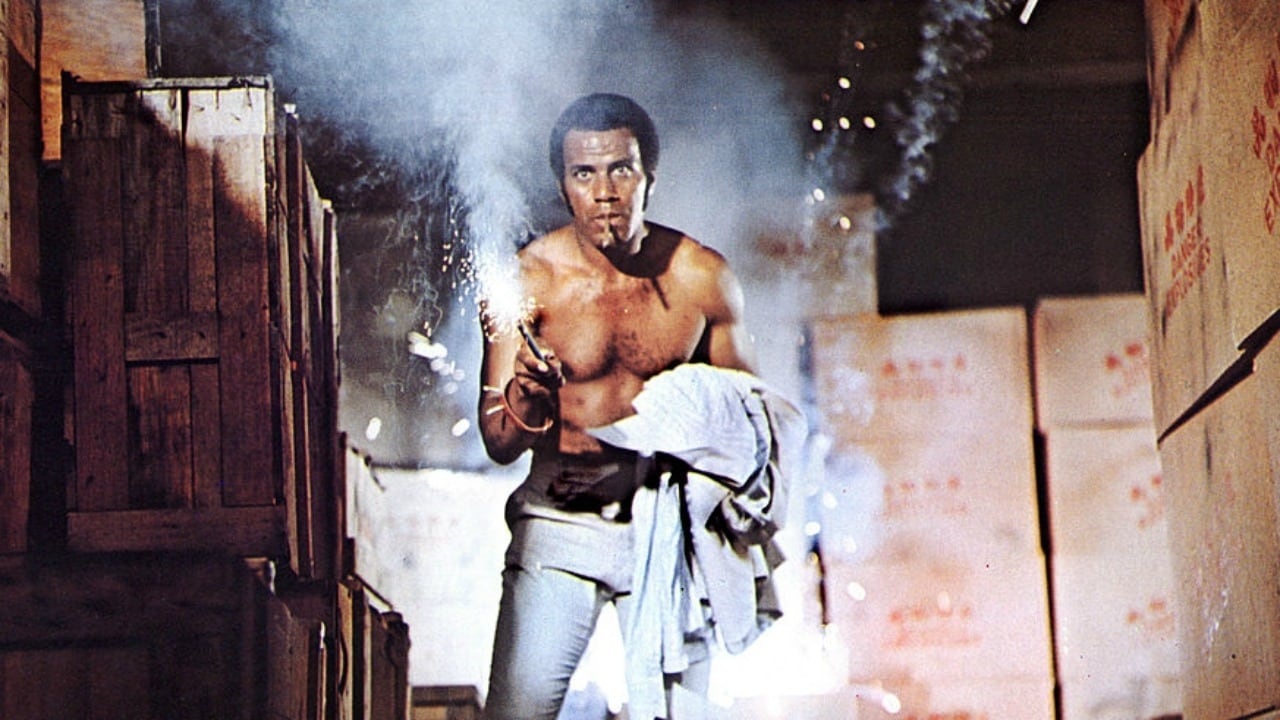
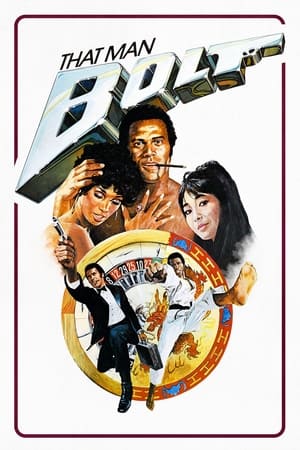
That Man Bolt
Got a super-hot delivery? Big, bad and beautiful - man's got it all!
1973 • 1h 43min • ★ 4.8/10 • United States of America
Directed by: Henry Levin
Cast: Fred Williamson, Byron Webster, Miko Mayama, Teresa Graves, John Orchard
Fred Williamson chop-sockeys his way through this popular blaxploitation adventure as Jefferson Bolt, a Kung Fu expert assigned to deliver a cool $1 million to Mexico City from Hong Kong with a stop in Los Angeles. When Bolt discovers the cash is dirty mob money and his gal has been killed, he heads back to the Far East to get even.
“That Man Bolt” is a classic 70s blaxploitation film that delivers on all fronts – action, humor, and style.
Fred Williamson stars as Jefferson Bolt, a private investigator who takes on a dangerous case involving stolen diamonds and a ruthless crime syndicate.
Williamson’s charisma and physicality make him a perfect fit for the role, and the action sequences are both thrilling and entertaining.
The film also boasts a funky soundtrack and some hilarious moments, including a memorable scene where Bolt uses a pair of nunchucks to take down some bad guys.

While the plot may be somewhat predictable, it’s the execution that makes “That Man Bolt” a must-see for fans of the genre.
- Factory sealed DVD
- Fred Williamson, Byron Webster, Miko Mayama (Actors)
- Henry Levin (Director) - Quentin Werty (Writer) - Bernard Schwartz (Producer)
- Spanish, French (Subtitles)
- Audience Rating: R (Restricted)
Friday Foster (1975)
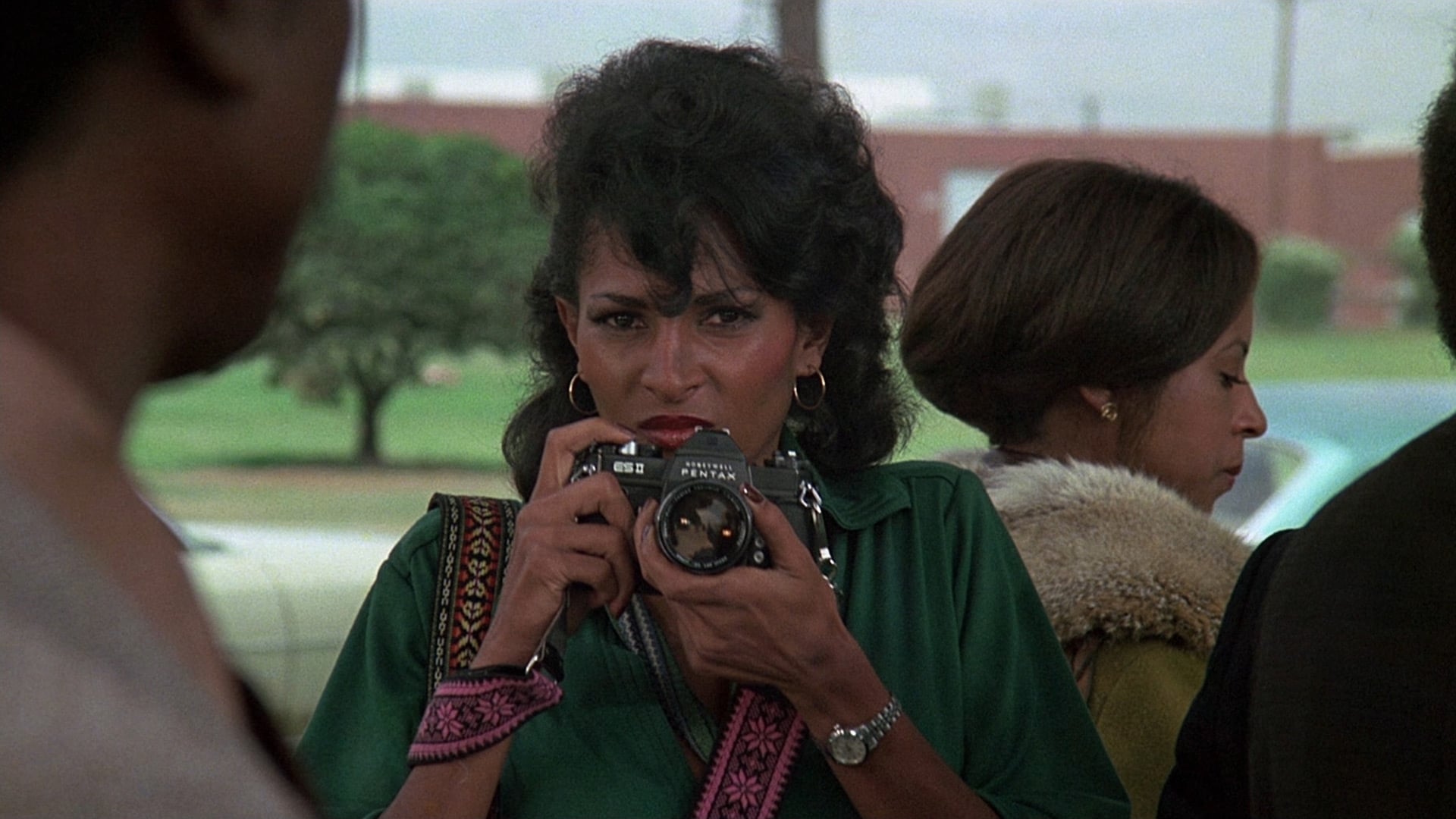
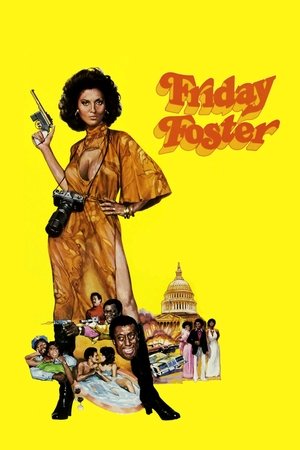
Friday Foster
Wham! Bam! Here Comes Pam!
1975 • 1h 30min • ★ 6/10 • United States of America
Directed by: Arthur Marks
Cast: Pam Grier, Yaphet Kotto, Godfrey Cambridge, Thalmus Rasulala, Eartha Kitt
Friday Foster, a magazine photographer, goes to Los Angeles International airport to photograph the arrival of Blake Tarr, the richest black man in America. Three men attempt to assassinate Tarr. Foster photographs the melee and is plunged into a web of conspiracy involving the murder of her childhood friend, a US senator, and a shadowy plan called "Black Widow".
“Friday Foster” is a blaxploitation film that packs in action, humor, and style all into one entertaining package.
Pam Grier shines as Friday Foster, a photographer who gets caught up in a conspiracy involving political figures and assassinations.
The film boasts a talented and diverse cast, including Yaphet Kotto and Eartha Kitt, who add depth to the story.
The film’s soundtrack is funky and memorable, perfectly capturing the energy of the era.
While the plot may not be the most original, the film’s commentary on race and politics adds a layer of relevance that still resonates today.
- Amazon Prime Video (Video on Demand)
- Pam Grier, Yaphet Kotto, Godfrey Cambridge (Actors)
- Arthur Marks (Director) - Arthur Marks (Writer) - Arthur Marks (Producer)
- English (Playback Language)
- English (Subtitle)
Black Caesar (1973)
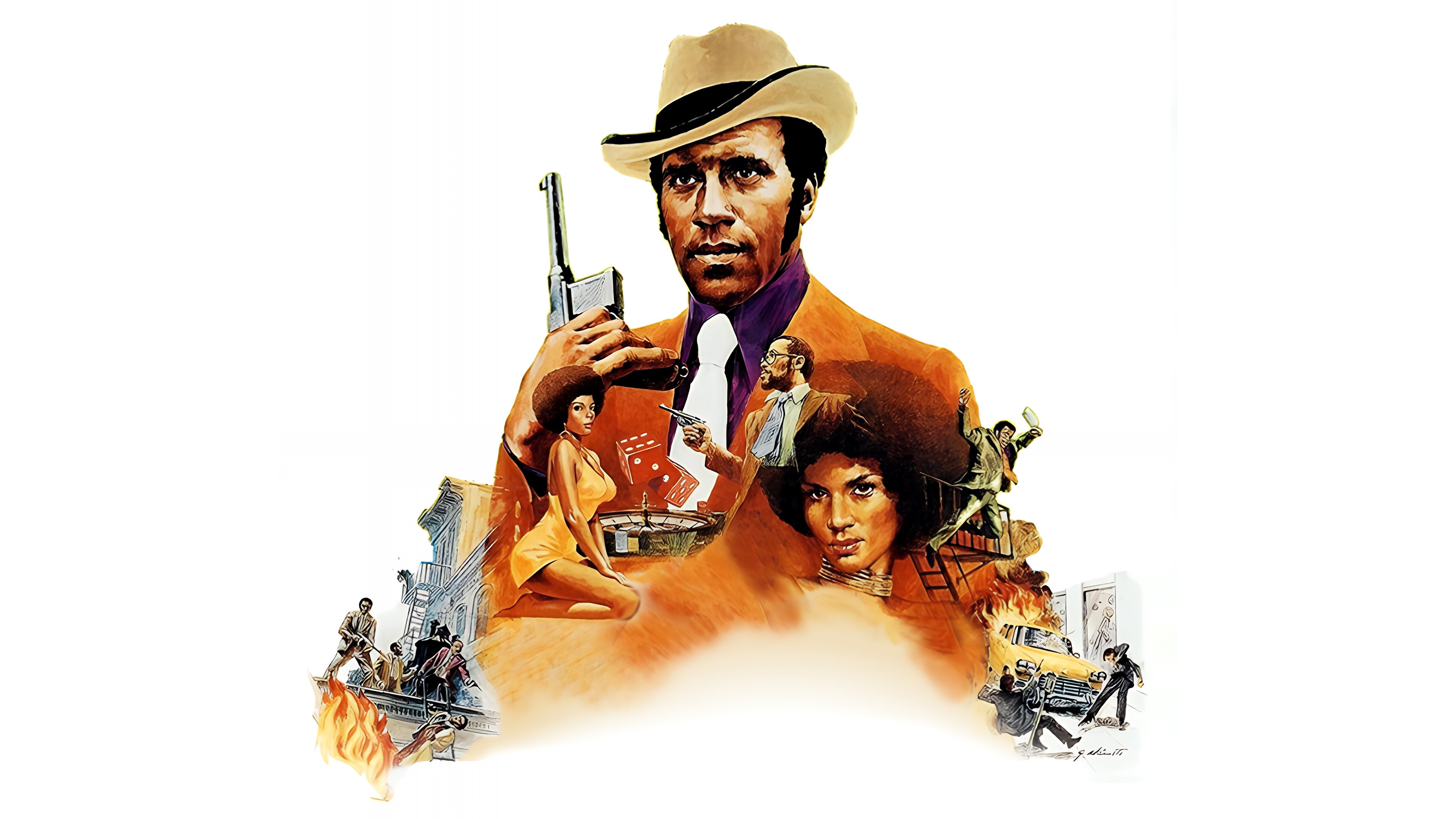
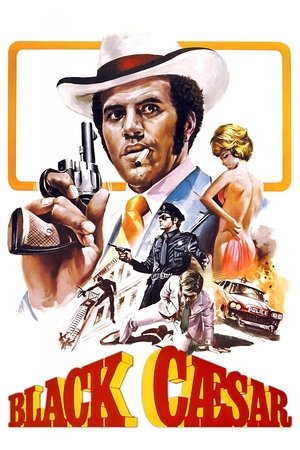
Black Caesar
Hail Caesar Godfather of Harlem!
1973 • 1h 34min • ★ 5.8/10 • United States of America
Directed by: Larry Cohen
Cast: Fred Williamson, Gloria Hendry, Art Lund, D'Urville Martin, Julius Harris
Tommy Gibbs is a tough kid, raised in the ghetto, who aspires to be a kingpin criminal. As a young boy, his leg is broken by a bad cop on the take, during a pay-off gone bad. Nursing his vengeance, he rises to power in Harlem, New York. Angry at the racist society around him, both criminal and straight, he sees the acquisition of power as the solution to his rage.
Black Caesar is a gritty and intense crime drama that tells the story of Tommy Gibbs (played brilliantly by Fred Williamson), a streetwise kid who rises to power as a ruthless crime boss in Harlem.
The film explores the themes of power, corruption, and betrayal, and does so with some of the most memorable action sequences and stylish cinematography of the era.
Director Larry Cohen does a fantastic job of capturing the tension and drama of the story, and the film’s soundtrack, composed by Brown, adds an layer of energy to the already intense scenes.
The performances are also top-notch, with Williamson delivering a standout performance as the charismatic and cunning Tommy Gibbs.
While some may find the film’s violent and graphic scenes difficult to watch, they are integral to the story and add to the film’s overall impact.
Black Caesar is a must-see for fans of crime dramas and classic cinema, and is a testament to the talent of everyone involved in its creation.
- Amazon Prime Video (Video on Demand)
- Fred Williamson, Minnie Gentry (Actors)
- Larry Cohen (Director) - Larry Cohen (Writer) - Larry Cohen (Producer)
- German, French (Playback Languages)
- German, French (Subtitles)
Willie Dynamite (1974)
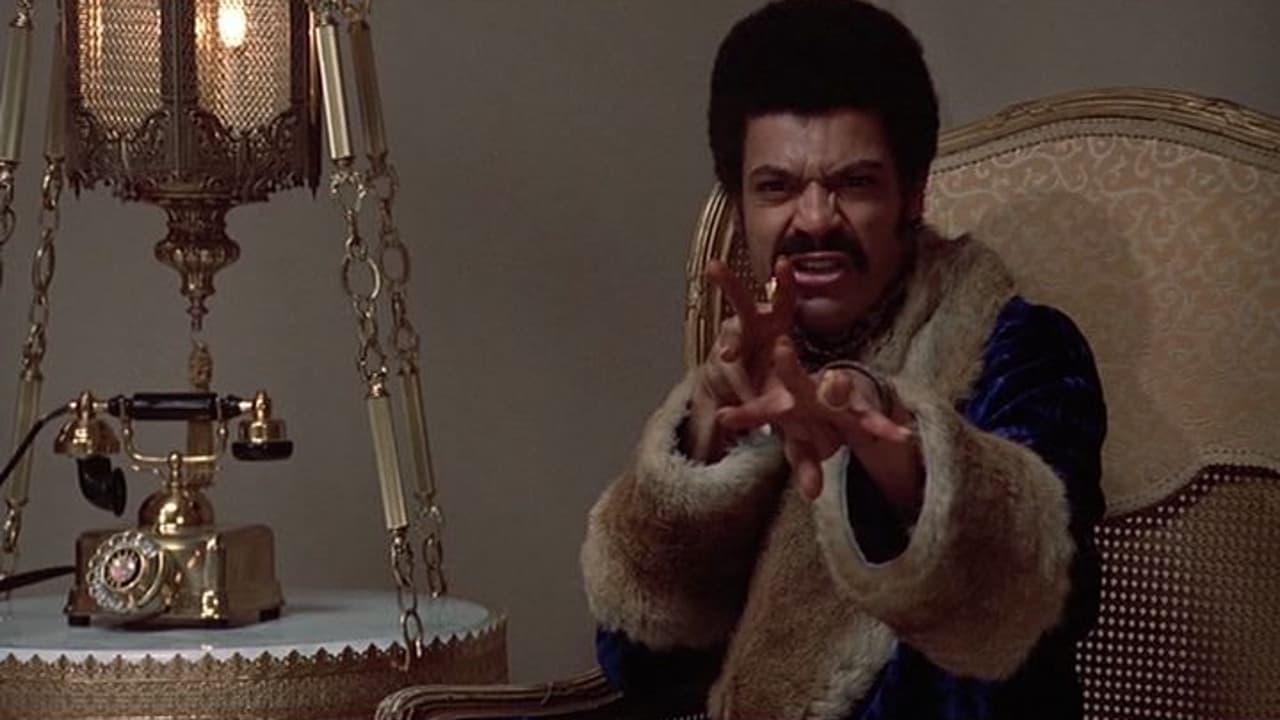
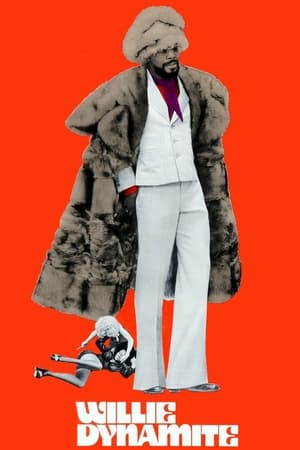
Willie Dynamite
Ain't no one crosses WILLIE "D." He's tight, together, and mean. Chicks, Chumps, he uses 'em all. He's got to be Number-One.
1974 • 1h 42min • ★ 6.4/10 • United States of America
Directed by: Gilbert Moses
Cast: Roscoe Orman, Diana Sands, Thalmus Rasulala, Joyce Walker, Roger Robinson
Willie Dynamite is a pimp who operates in New York City. Willie was a big success as a pimp, but now, just as fast as he rose to the top, he has hit bottom. A former prostitute who has become a social worker tries to get Willie to clean up his life while it is still possible.
As a film aficionado, I recently watched the blaxploitation classic “Willie Dynamite” from 1974 and was thoroughly impressed by its gritty and unapologetic portrayal of a pimp’s rise and fall in the streets of New York City.
Roscoe Orman delivers a standout performance as Willie Dynamite, a smooth-talking and stylish pimp who rules his territory with an iron fist, but soon finds himself in hot water when he crosses paths with a determined social worker.
The film’s cinematography is impressive, capturing the seedy underbelly of the city with a raw and unflinching eye.
The soundtrack is also a highlight, featuring funky and soulful tunes that perfectly complement the film’s 70s aesthetic.
While some may find the film’s subject matter controversial, “Willie Dynamite” serves as a time capsule of a bygone era and a reminder of the harsh realities faced by those living on the margins of society.
- Shrink-wrapped
- Roscoe Orman, Diana Sands, Thalmus Rasulala (Actors)
- Gilbert Moses (Director)
- English (Subtitle)
- Audience Rating: R (Restricted)
Truck Turner (1974)
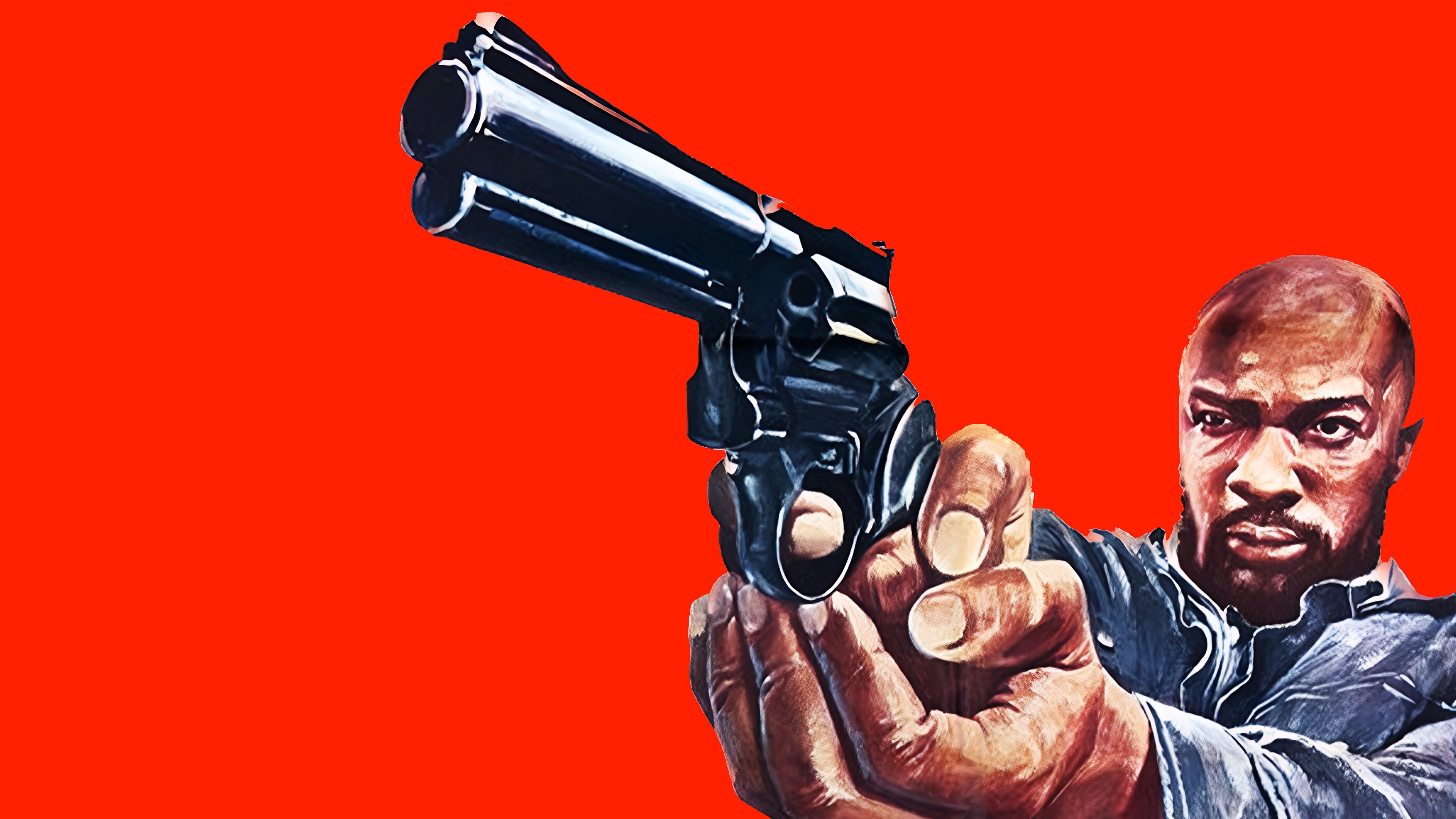
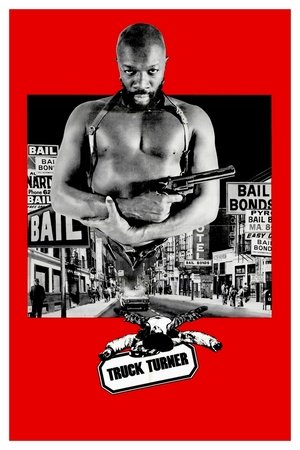
Truck Turner
Black, bold and bloody mean!
1974 • 1h 31min • ★ 6.5/10 • United States of America
Directed by: Jonathan Kaplan
Cast: Isaac Hayes, Yaphet Kotto, Alan Weeks, Annazette Chase, Nichelle Nichols
Truck Turner and his partner Jerry, who make their living as bounty hunters in Los Angeles, are hired to hunt down Gator, a pimp who has skipped bail.
“Truck Turner is a gritty, action-packed blaxploitation film that delivers on all fronts.
Isaac Hayes shines as the titular character, a tough-as-nails bounty hunter who will stop at nothing to get his man.
The film is filled with car chases, shootouts, and plenty of one-liners that will have you laughing and cheering along with the action.
But what really sets Truck Turner apart is its portrayal of the African American experience in 1970s America.
The film doesn’t shy away from the realities of racism and police brutality, and Hayes’ character is a powerful symbol of resistance and justice in the face of oppression.
- Amazon Prime Video (Video on Demand)
- Isaac Hayes, Yaphet Kotto, Alan Weeks (Actors)
- Jonathan Kaplan (Director) - Oscar Williams (Writer) - Paul M. Heller (Producer)
- English (Playback Language)
- English (Subtitle)
Three The Hard Way (1974)
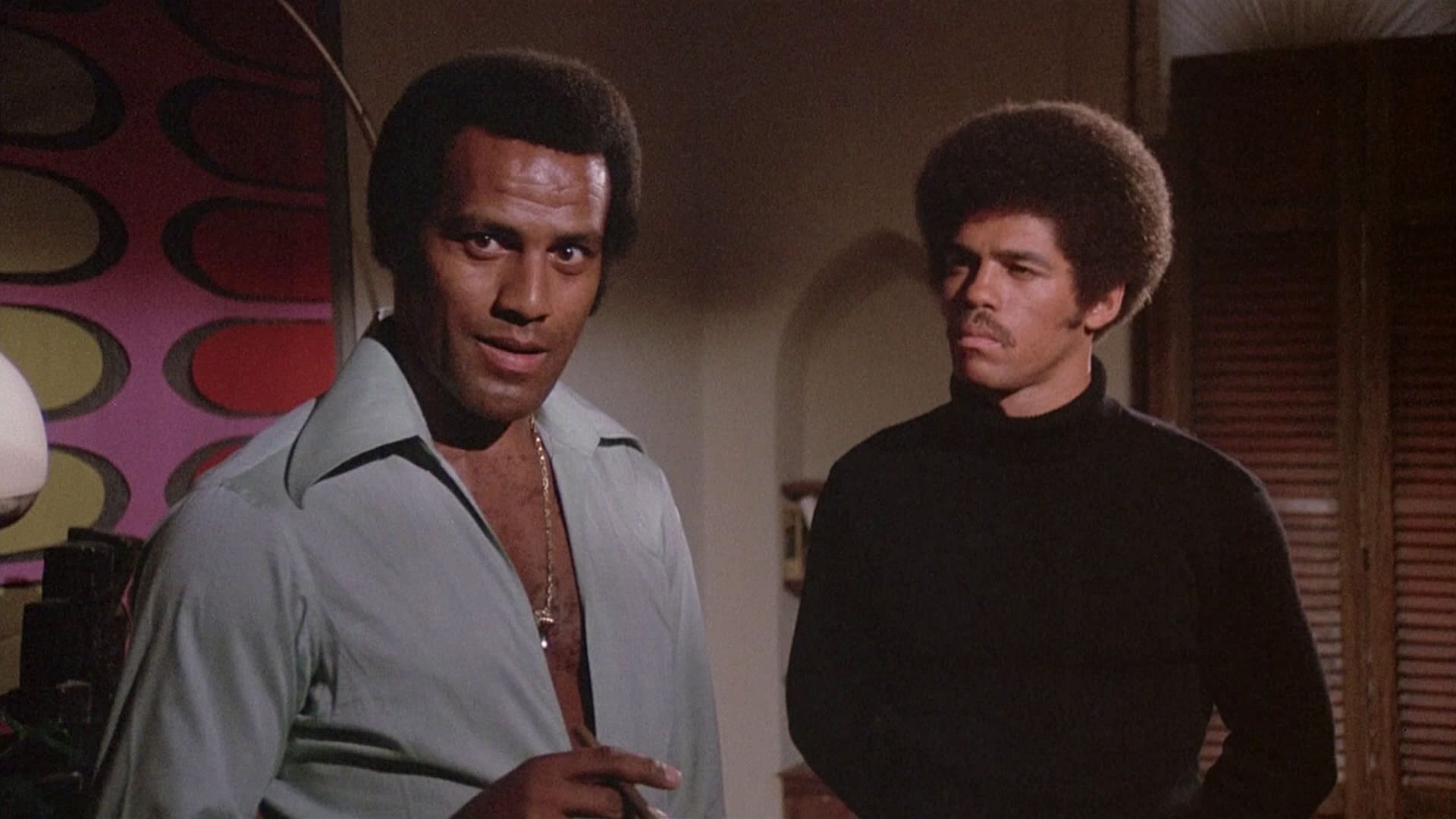
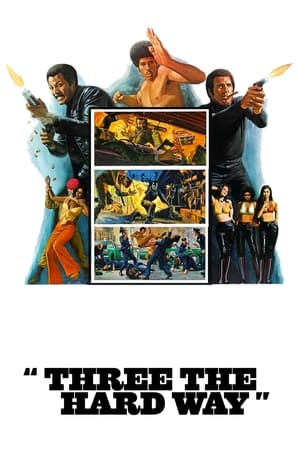
Three the Hard Way
Action explodes all over the place when the big three join forces to save their race!
1974 • 1h 29min • ★ 6.3/10 • United States of America
Directed by: Gordon Parks Jr.
Cast: Jim Brown, Fred Williamson, Jim Kelly, Sheila Frazier, Jay Robinson
After his wife is kidnapped by a group of White supremacists, a record producer teams up with a PR man and a martial artist to get her back and put a stop to their plot to poison the water supply with a toxin that only kills Black people.
Three The Hard Way (1974) is a high-octane action film that delivers on its promise of non-stop thrills and excitement.
This Blaxploitation classic stars Jim Brown, Fred Williamson, and Jim Kelly as a trio of badass heroes who team up to stop a white supremacist group from poisoning the drinking water of three major American cities.
The film is filled with intense car chases, explosive shootouts, and bone-crunching fight scenes that will leave you on the edge of your seat.
The chemistry between the three leads is palpable, and their on-screen camaraderie is a joy to watch.
What sets Three The Hard Way apart from other action films of its time is its unapologetic celebration of Black power and resistance against white supremacy.
The film’s opening scene, which depicts the brutal murder of a young Black boy by a group of white supremacists, sets the tone for the rest of the movie and establishes its powerful message of Black solidarity.
- Amazon Prime Video (Video on Demand)
- Jim Brown, Fred Williamson, Jim Kelly (Actors)
- Gordon Parks, Jr. (Director) - Eric Bercovici (Writer) - Harry Bernsen (Producer)
- English (Playback Language)
- English (Subtitle)
Cooley High (1975)
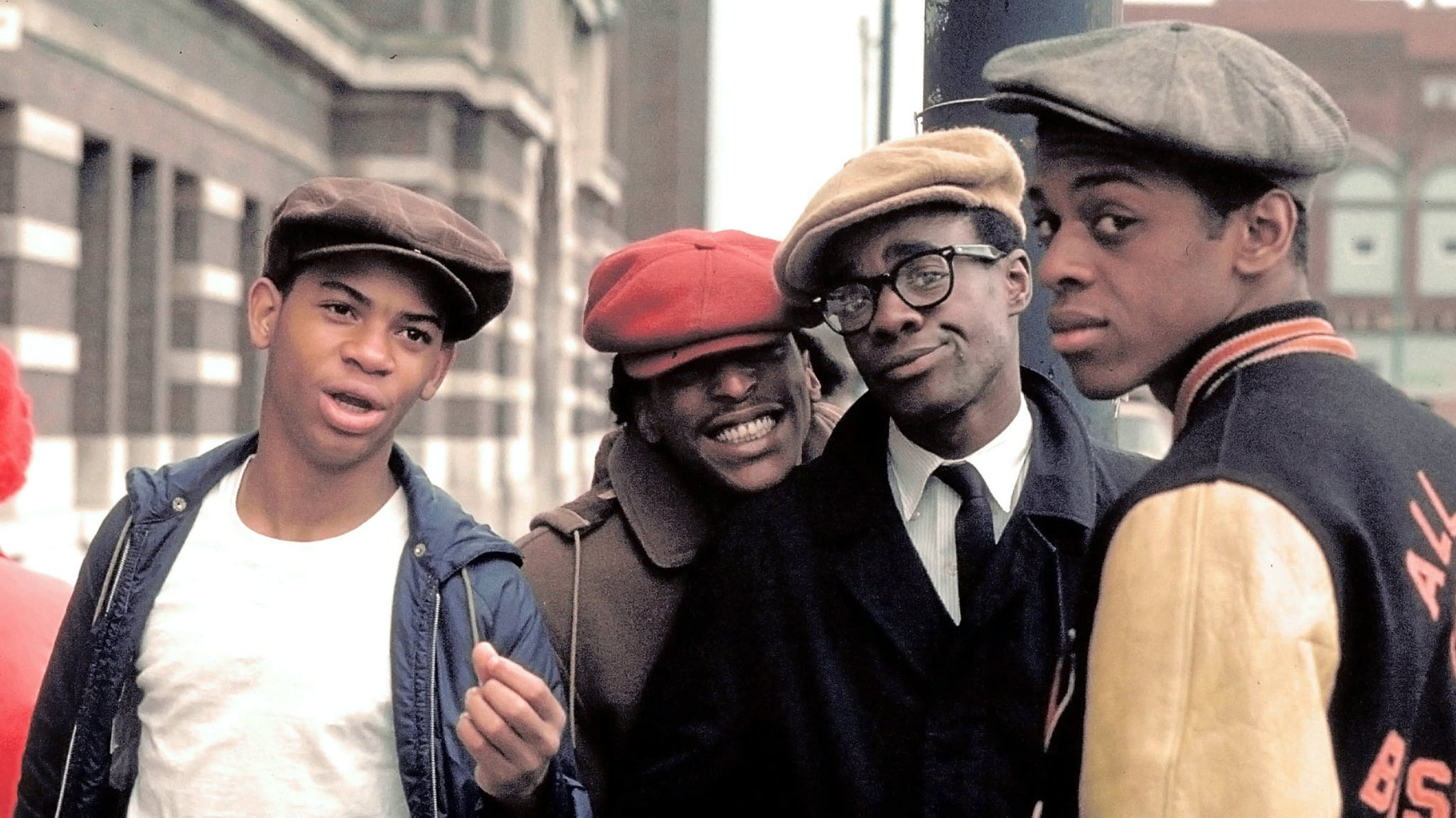
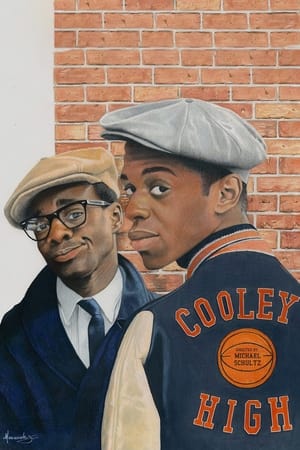
Cooley High
Where the Student Body Was a Chick Named Veronica... The Senior Prom was a 'belly rub' and the Class of '64 ran a Permanent crap game in the Men's Room!
1975 • 1h 47min • ★ 6.875/10 • United States of America
Directed by: Michael Schultz
Cast: Glynn Turman, Lawrence Hilton-Jacobs, Garrett Morris, Cynthia Davis, Corin Rogers
In the mid-1960s, a group of high school friends who live on the Near North Side of Chicago enjoy life to the fullest...parties, hanging out, meeting new friends. Then life changes for two of the guys when they are falsely arrested in connection with stealing a Cadillac. We follow their lives through to the dramatic end of high school.
Cooley High is a timeless coming-of-age film that captures the essence of adolescence in way that few films do.
Set in Chicago’s Cabrini-Green housing projects, the movie follows the lives of two high school seniors, Preach and Cochise, as they navigate the challenges of growing up in a tough neighborhood.
The film is a beautiful blend of humor and heartbreak, showcasing the joys and sorrows of teenage life.
The characters are authentic, relatable, and endearing, from Preach’s witty humor to Cochise’s charming charisma.
The film’s soundtrack, featuring classic Motown hits, adds an extra layer of nostalgia and emotion to the already powerful storytelling.
Director Michael Schultz masterfully captures the essence of 1960s Chicago, immersing audiences in the sights and sounds of the era.
The film is a time capsule of sorts, transporting viewers back to a simpler time when life was all about school, friends, and first loves.
Cooley High is a must-watch for anyone who appreciates a good coming-of-age story.
It’s a film that will make you laugh, cry, and ultimately leave you with a renewed sense of hope and appreciation for life’s simple pleasures.
- Glynn Turman, Lawrence-Hilton Jacobs, Garrett Morris (Actors)
- Michael Schultz (Director)
- English (Publication Language)
- Audience Rating: PG (Parental Guidance Suggested)
Coffy (1973)

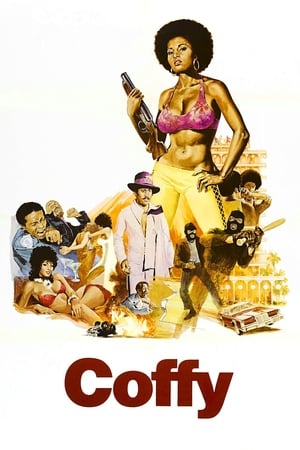
Coffy
The Baddest One-Chick Hit-Squad that ever hit town!
1973 • 1h 30min • ★ 6.632/10 • United States of America
Directed by: Jack Hill
Cast: Pam Grier, Robert DoQui, Sid Haig, Booker Bradshaw, William Elliott
After her younger sister gets involved in drugs and is severely injured by contaminated heroin, a nurse sets out on a mission of vengeance and vigilante justice, killing drug dealers, pimps, and mobsters who cross her path.
Coffy is a classic blaxploitation film that is not for the faint of heart.
Directed by Jack Hill and starring Pam Grier in the titular role, this film follows a nurse who takes matters into her own hands after her sister becomes a victim of drug dealers.
Grier is an absolute force in this film, delivering a performance that is both fierce and vulnerable.
As Coffy, she is a woman on a mission, willing to do whatever it takes to bring down the drug underworld.
The film’s gritty depiction of violence and drug use may be jarring for some viewers, but it is an important commentary on the social issues of the time.
Despite the film’s low budget and occasional rough edges, Coffy is a thrilling and entertaining ride from start to finish.
With its characters, pulse-pounding action, and social commentary, this film remains a standout in the blaxploitation genre.
If you’re a fan of classic exploitation cinema, Coffy is a must-see.
- Amazon Prime Video (Video on Demand)
- Pam Grier, Booker Bradshaw, Robert DoQui (Actors)
- Jack Hill (Director) - Jack Hill (Writer) - Salvatore Billitteri (Producer)
- English (Playback Language)
- English (Subtitle)
Uptown Saturday Night (1974)
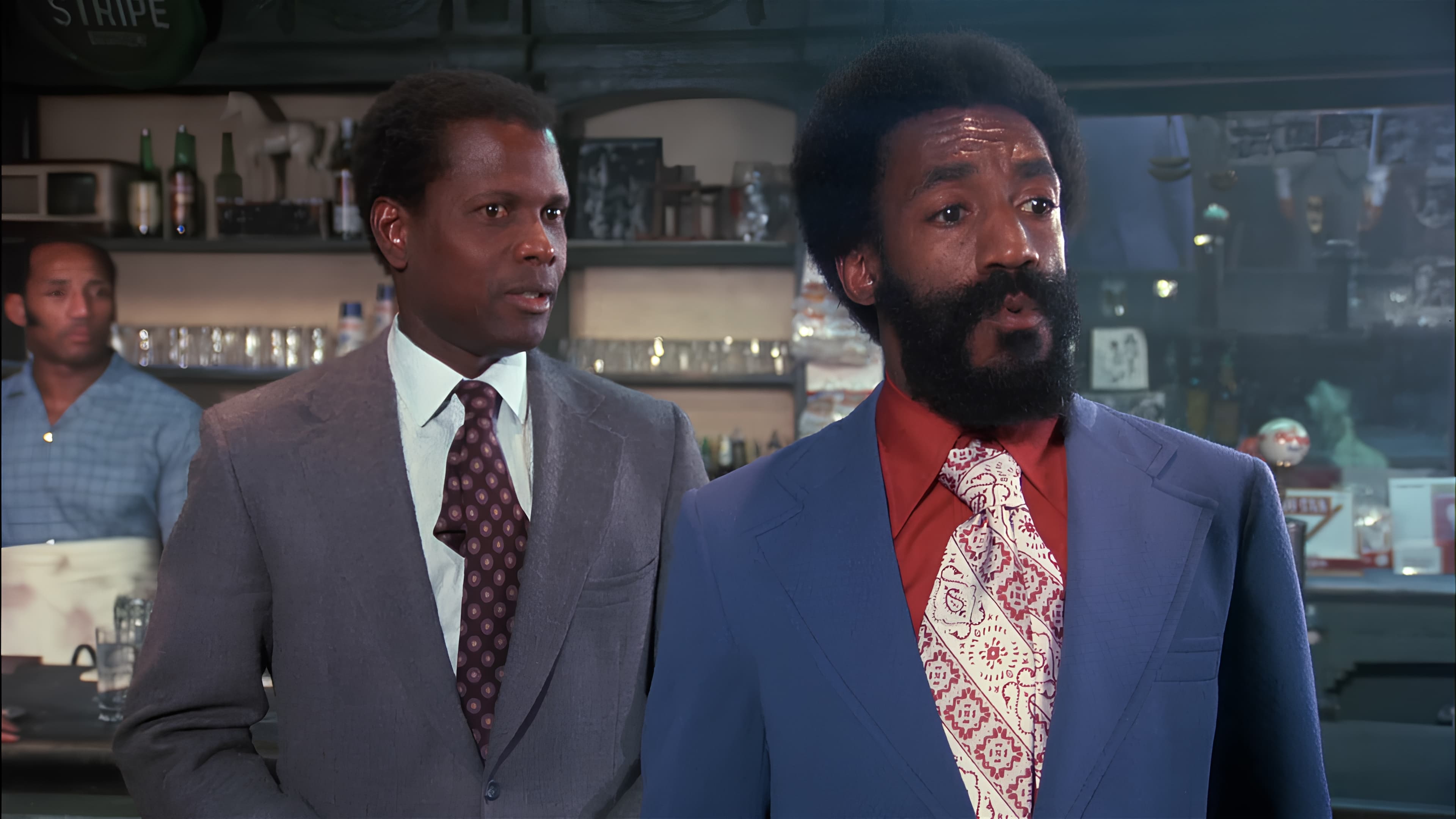
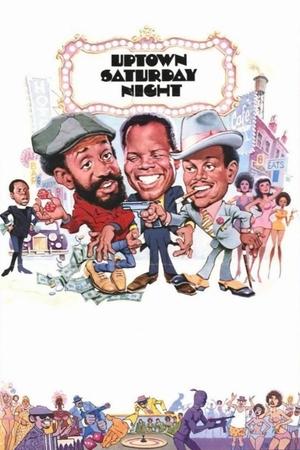
Uptown Saturday Night
They get funny when you mess with their money.
1974 • 1h 44min • ★ 6.1/10 • United States of America
Directed by: Sidney Poitier
Cast: Sidney Poitier, Bill Cosby, Harry Belafonte, Flip Wilson, Richard Pryor
Two blue-collar buddies search the underworld for a winning lottery ticket lost in a nightclub holdup.
Uptown Saturday Night is a classic comedy film that showcases the chemistry between two of the biggest stars of their time, Sidney Poitier and Cosby Directed Poitier himself, this film follows two friends who find themselves in the middle of a heist gone wrong.
Poitier and Cosby’s comedic timing is impeccable, and their banter is a joy to watch throughout the film.
The supporting cast, including Harry Belafonte and Flip Wilson, also deliver great performances, adding to the film’s overall charm.
While the plot may be a bit thin at times, Uptown Saturday Night more than makes up for it with its energetic and entertaining approach.
The film’s soundtrack, featuring the likes of The Staple Singers and The Spinners, is also a standout.
- Amazon Prime Video (Video on Demand)
- Sidney Poitier Bill Cosby Harry Belafonte Flip Wilson Richard Pryor Calvin Lockhart Rosalind Cash...
- Sidney Poitier (Director) - Richard Wesley (Writer) - Melville Tucker (Producer)
- English (Playback Language)
- English (Subtitle)
The Spook Who Sat By the Door (1973)
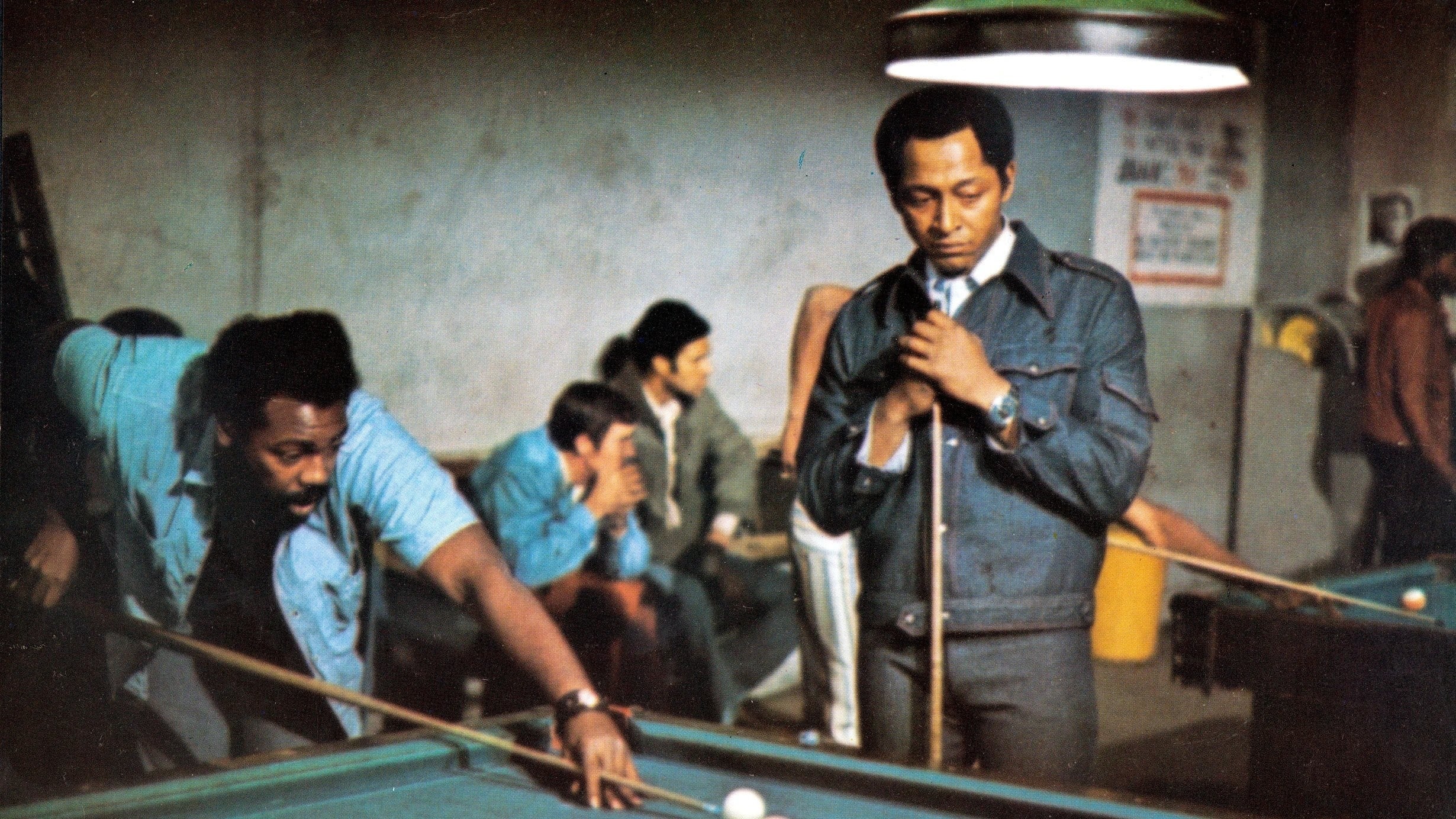
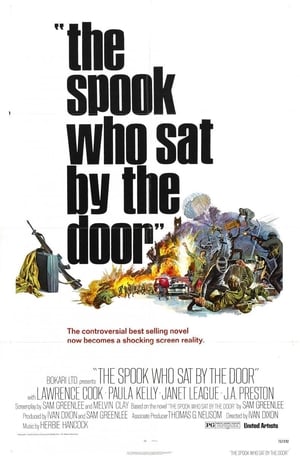
The Spook Who Sat by the Door
Their first mistake was letting him in. Their biggest mistake was letting him out!
1973 • 1h 42min • ★ 6.286/10 • United States of America
Directed by: Ivan Dixon
Cast: Lawrence Cook, Janet League, Paula Kelly, J.A. Preston, Paul Butler
A black man plays Uncle Tom in order to gain access to CIA training, then uses that knowledge to plot a new American Revolution.
“The Spook Who Sat By the Door” is a powerful and politically charged film that has been overlooked for far too long.
Directed by Ivan Dixon and based on the novel by Sam Greenlee, this 1973 gem tells the story of Dan Freeman (Lawrence Cook), the first black CIA agent who is recruited as part of a token integration scheme, only to be passed over for promotion and ultimately fired.
Freeman then returns to his hometown of Chicago and uses his training to organize and lead a group of black militants in a daring revolution against the white establishment.
The film is a raw and unapologetic portrayal of the anger and frustration felt by many black Americans during the Civil Rights movement.
It’s a film that doesn’t pull any punches, and its uncompromising approach may be hard for some viewers to swallow.
But for those willing to take the journey, “The Spook Who Sat By the Door” is a powerful and thought-provoking film that deserves to be seen.
The performances are excellent across the board, with Lawrence Cook delivering a standout turn as the charismatic and determined Dan Freeman.
The film’s action sequences are also well executed, with the revolution scenes feeling particularly tense and realistic.
- Lawrence Cook, Janet League, Paula Kelly (Actors)
- Ivan Dixon (Director) - Melvin Clay (Writer)
- English (Publication Language)
- Audience Rating: PG (Parental Guidance Suggested)
Cotton Comes to Harlem (1970)
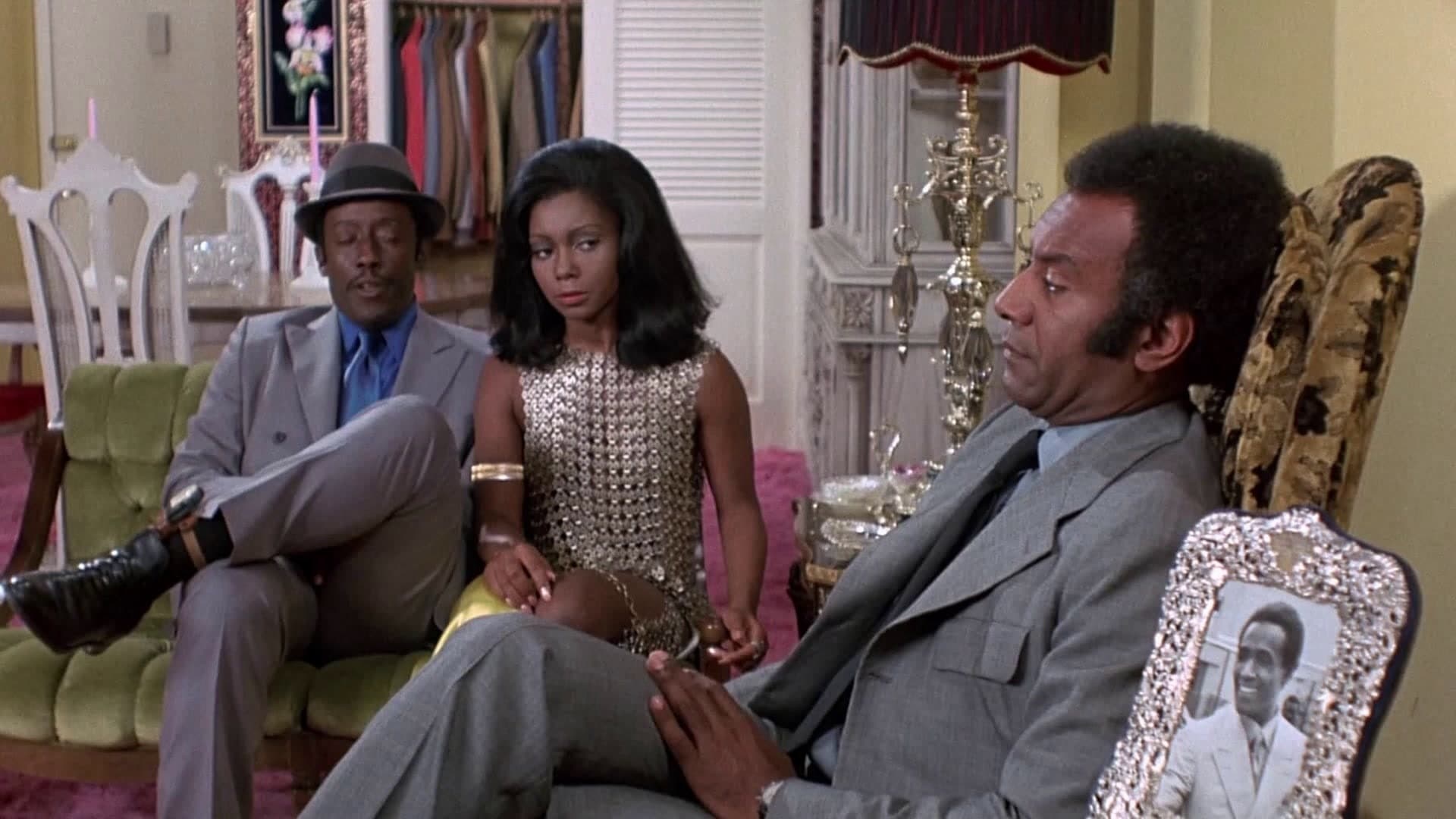
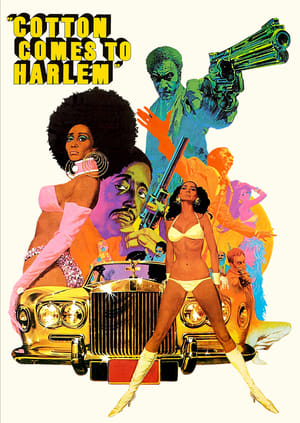
Cotton Comes to Harlem
Introducing COFFIN ED and GRAVEDIGGER. Two detectives only a mother could love.
1970 • 1h 37min • ★ 6.2/10 • United States of America
Directed by: Ossie Davis
Cast: Godfrey Cambridge, Raymond St. Jacques, Calvin Lockhart, Judy Pace, Redd Foxx
Harlem's African-American population is being ripped off by the Rev. Deke O'Malley, who dishonestly claims that small donations will secure parcels of land in Africa. When New York City police officers Gravedigger Jones and Coffin Ed Johnson look into O'Malley's scam, they learn that the cash is being smuggled inside a bale of cotton. However, the police, O'Malley, and lots of others find themselves scrambling when the money goes missing.
Cotton Comes to Harlem is a classic Blaxploitation film that is a must-see for fans of the genre.
Set in Harlem in the late 1960s, the film follows two detectives, Gravedigger Jones and Coffin Ed Johnson, as they investigate a robbery that has left the community reeling.
The film is a perfect blend of action, humor, and social commentary, with a strong cast led by Godfrey Cambridge and Raymond St. Jacques.
The chemistry between the two leads is electric, and their banter is both hilarious and poignant.
Director Ossie Davis does a fantastic job of capturing the vibrant energy of Harlem, and the film’s soundtrack is a funky delight.
The film also tackles important themes such as police brutality, gentrification, and the struggle for black empowerment.
- Amazon Prime Video (Video on Demand)
- Godfrey Cambridge, Raymond St. Jacques (Actors)
- Ossie Davis (Director) - Ossie Davis (Writer) - Samuel Goldwyn Jr. (Producer)
- English (Playback Language)
- English (Subtitle)
Ganja and Hess (1973)
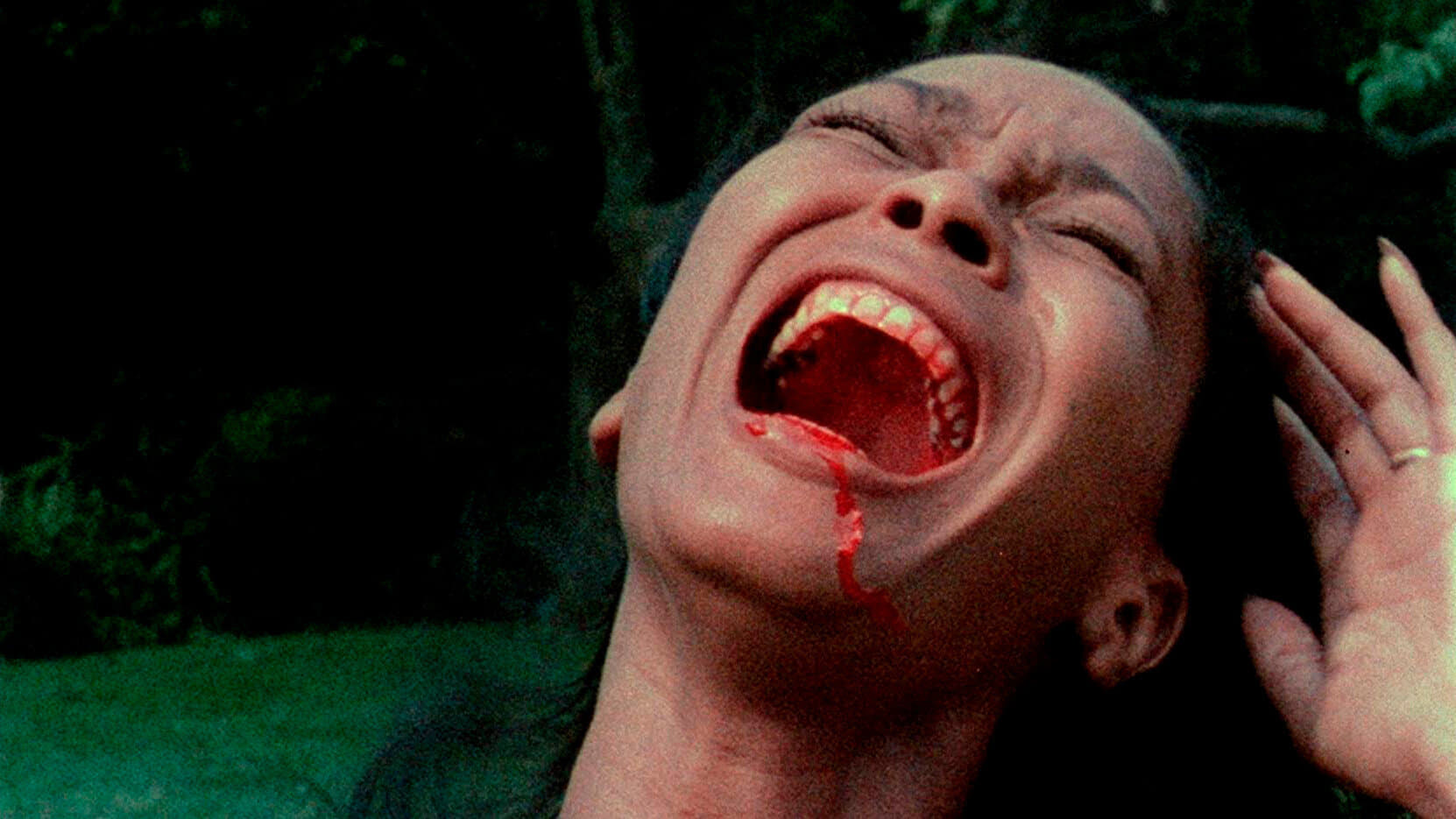

Ganja & Hess
Some Marriages Are Made In Heaven. Others Are Made In Hell.
1973 • 1h 53min • ★ 5.862/10 • United States of America
Directed by: Bill Gunn
Cast: Marlene Clark, Duane Jones, Bill Gunn, Sam Waymon, Leonard Jackson
After being stabbed with an ancient, germ-infested knife, a doctor finds himself with an insatiable desire for blood.
Ganja and Hess is a mesmerizing and haunting film that defies easy categorization. At its core, it’s a vampire story, but it’s also much more than that.
Director Bill Gunn explores themes of addiction, spirituality, and Black identity in ways that are both subtle and powerful.
The film follows Dr. Hess Green, played with quiet intensity by Duane Jones, as he becomes entangled with the mysterious and alluring Ganja, played by Marlene Clark.
What follows is a slow-burn exploration of desire and temptation, as Ganja introduces Hess to a world of blood and addiction.
Gunn’s direction is dreamlike and surreal, with stunning cinematography that captures the beauty and horror of the film’s themes.
The performances are equally impressive, with Jones and Clark delivering nuanced and layered portrayals of their characters.
While Ganja and Hess may not be for everyone, those who are willing to take the journey will be rewarded with a thought-provoking and unforgettable film.
- Amazon Prime Video (Video on Demand)
- Duane Jones, Marlene Clark, Bill Gunn (Actors)
- Bill Gunn (Director) - Bill Gunn (Writer) - Chiz Schultz (Producer)
- English (Playback Language)
- English (Subtitle)
Dolemite (1973)
No poster available
Dolemite is a blaxploitation classic that’s both incredibly entertaining and historically significant.
Directed by D’Urville Martin and starring the irrepressible Rudy Ray Moore, the movie follows the exploits of a pimp named Dolemite who’s released from prison and seeks revenge on his enemies.
What makes Dolemite such a joy to watch is the sheer energy and charisma of Moore’s performance.
He’s a force of nature, spouting rhymes and insults with equal aplomb and always ready for a fight.
The film’s fight scenes are a particular highlight, with Dolemite dispatching his foes in a flurry of kicks, punches, and acrobatics.
But Dolemite is more than just a showcase for Moore’s talents.
It’s also a celebration of black culture and a response to the racism and oppression faced by African Americans in the 1970s.
The film’s soundtrack, featuring soul and funk tracks by artists like The Pointer Sisters and Marvin Gaye, is a testament to the richness and vitality of black music.
Of course, Dolemite is far from perfect. The acting can be wooden at times, the pacing is uneven, and the production values are decidedly low-budget.
But these flaws only add to the film’s charm, giving it a rough-and-tumble feel that’s impossible to resist.
No products found.
Trouble Man (1972)
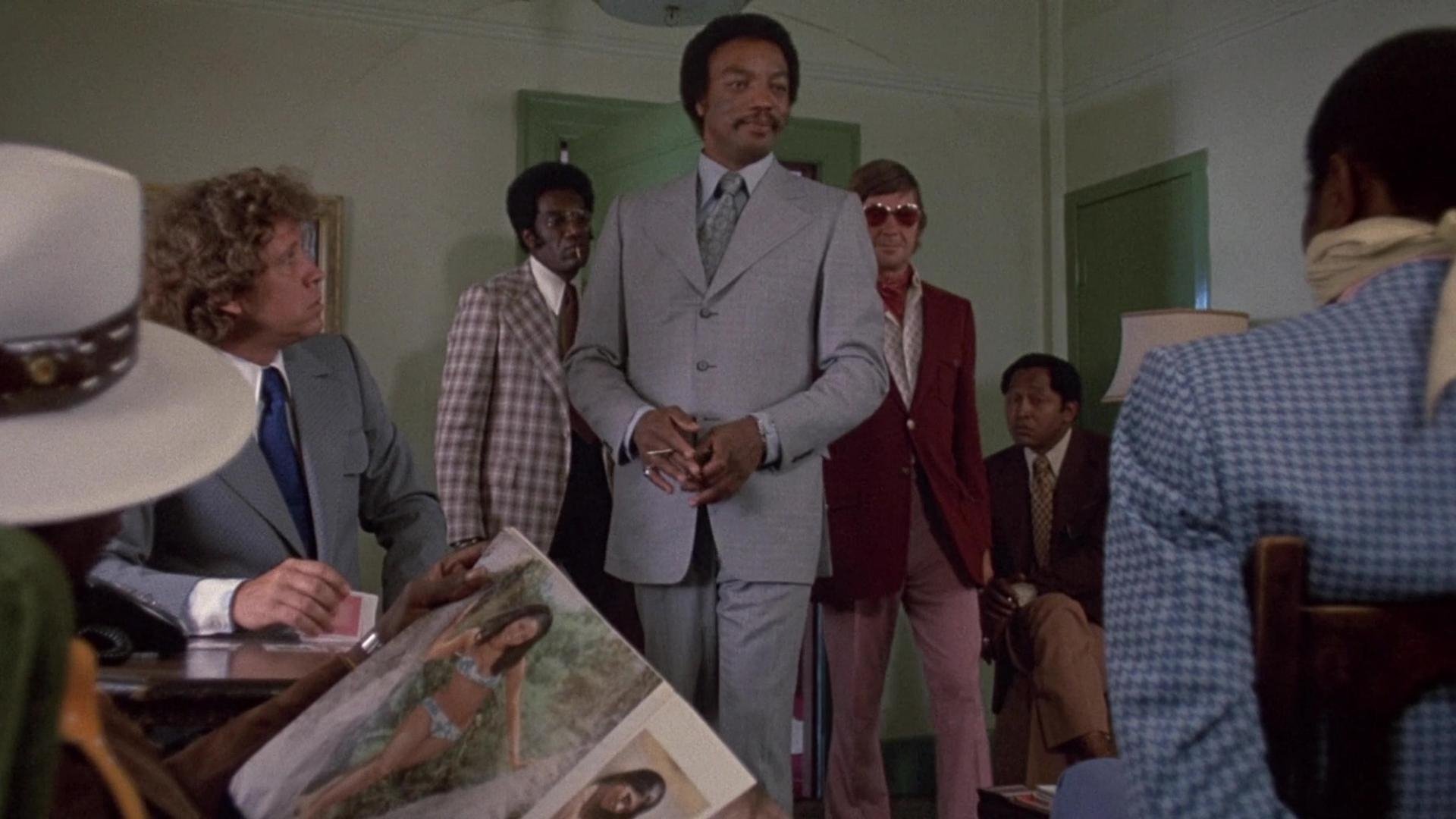
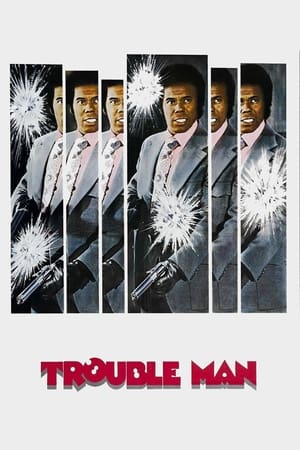
Trouble Man
His friends call him Mr. T. His enemies call for mercy!
1972 • 1h 39min • ★ 6.143/10 • United States of America
Directed by: Ivan Dixon
Cast: Robert Hooks, William Smithers, Paul Winfield, Ralph Waite, Paula Kelly
It seems that masked men are knocking over the floating crap games of Chalky and Pete. Chalky and Pete hire the cool, loose, elegant Mr. T to fix things. Then, the masked manipulators set up the death of a collector for a rival gang lord. It looks like it's up to T to hold a gang war from breaking out, keep the police off his back, and earn his fee from Chalky and Pete.
Trouble Man is a gritty and stylish crime drama set in the seedy underworld of 1970s Los Angeles.
Directed by Ivan Dixon and starring Robert Hooks as the enigmatic anti-hero “Mr. T”, the film is a thrilling ride filled with action, suspense, and a killer soundtrack by legendary jazz musician Marvin Gaye.
The story follows Mr. T, a freelance agent who specializes in resolving “troubles” for the criminal underworld. When a powerful gangster hires him to protect his girlfriend, Mr. T finds himself caught up in a dangerous game of double-crosses and deception.
As the body count rises and the stakes get higher, Mr. T must use all his street smarts and cunning to survive.
Hooks delivers a standout performance as the suave and ruthless Mr. T, exuding charisma and cool with every line of dialogue.
The supporting cast is equally impressive, including Paul Winfield as the conflicted detective trying to bring Mr. T down, and Paula Kelly as the gangster’s girlfriend caught in the middle.
But perhaps the biggest star of the film is Gaye’s unforgettable soundtrack, featuring hits like “Trouble Man” and “Don’t Mess with Mister T”.
The soulful and funky score perfectly captures the mood and atmosphere of the film, adding an extra layer of cool to an already badass movie.
- Paul Winfield (Actor)
- Ivan Dixon (Director)
- Audience Rating: R (Restricted)
Black Belt Jones (1974)
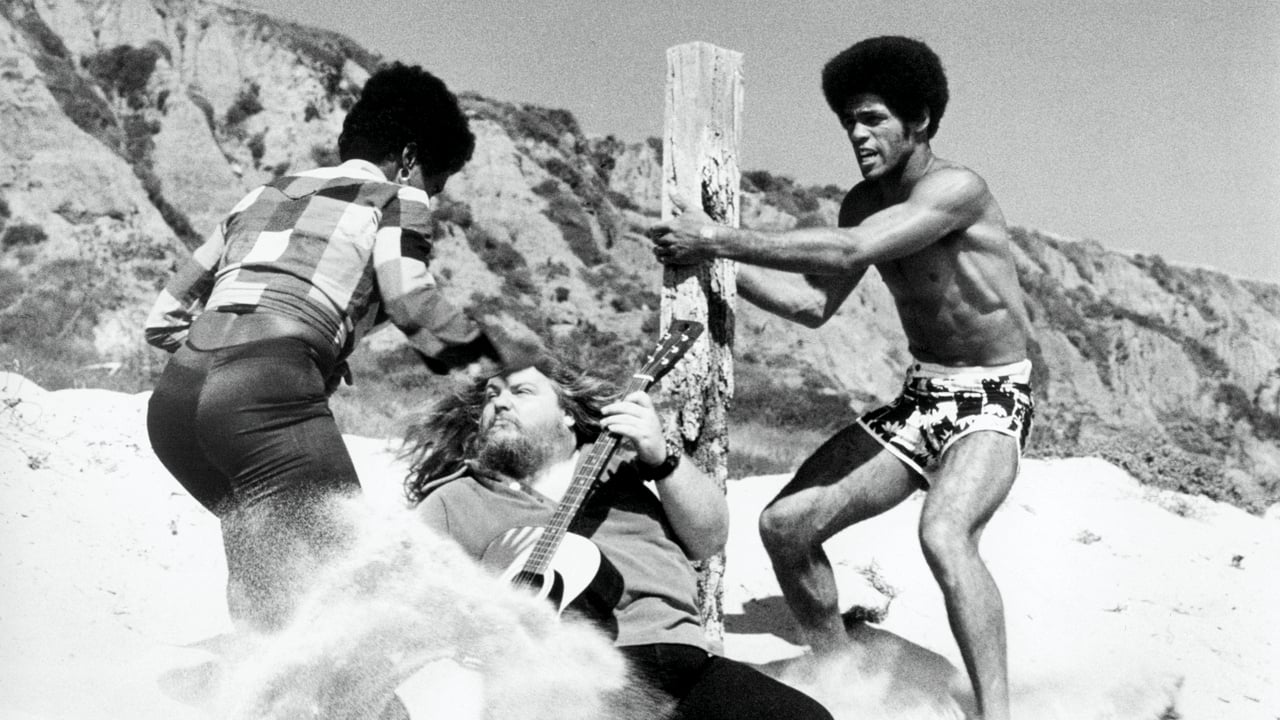
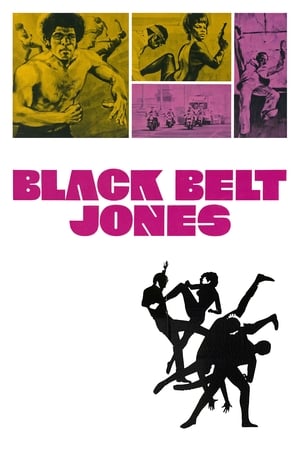
Black Belt Jones
He clobbers the mob
1974 • 1h 27min • ★ 5.9/10 • United States of America
Directed by: Robert Clouse
Cast: Jim Kelly, Gloria Hendry, Scatman Crothers, Eric Laneuville, Alan Weeks
Jones is a secret agent who has gone into semi-retirement, concentrating instead on teaching the martial arts to inner city youths. The karate school is run by a kindly old coot named Pops ,played by Scatman Crothers. His gambling debts, however, bring the local thug, Pinky, down on him. To make matters worse, Pinky is then hired by some white thugs who want to get a hold of the property Pops' school occupies so they can build a shopping mall. When things get heavy, Black Belt Jones leaps into action. Only he's not alone. Pops' daughter, Sidney, shows up to lend a hand, proving herself every bit as agile and powerful a martial artist as Jones.
Black Belt Jones is a classic martial arts film from the 70s that is sure to satisfy any fan of the genre.
The film follows the titular character, played by Jim Kelly, a skilled martial artist who is tasked with protecting a karate school from a group of ruthless gangsters.
The film is filled with high-flying action sequences and impressive fight choreography that will leave you on the edge of your seat.
Kelly’s performance as Black Belt Jones is charismatic and engaging, and he effortlessly portrays both the physicality and the humor of the character.
The supporting cast is also strong, with Gloria Hendry delivering a standout performance as the tough-as-nails Sydney, and Scatman Crothers bringing a sense of levity to the film as Pop Byrd, the owner of the karate school.
While the plot may be somewhat predictable, the film’s energy and style make up for any shortcomings in the story.
The soundtrack, featuring funky and soulful tracks, is also a highlight of the film.
- Amazon Prime Video (Video on Demand)
- Jim Kelly, Gloria Hendry, Scatman Crothers (Actors)
- Robert Clouse (Director) - Alex Ross (Writer) - Fred Weintraub (Producer)
- English (Playback Language)
- English (Subtitle)
Across 110th Street (1972)
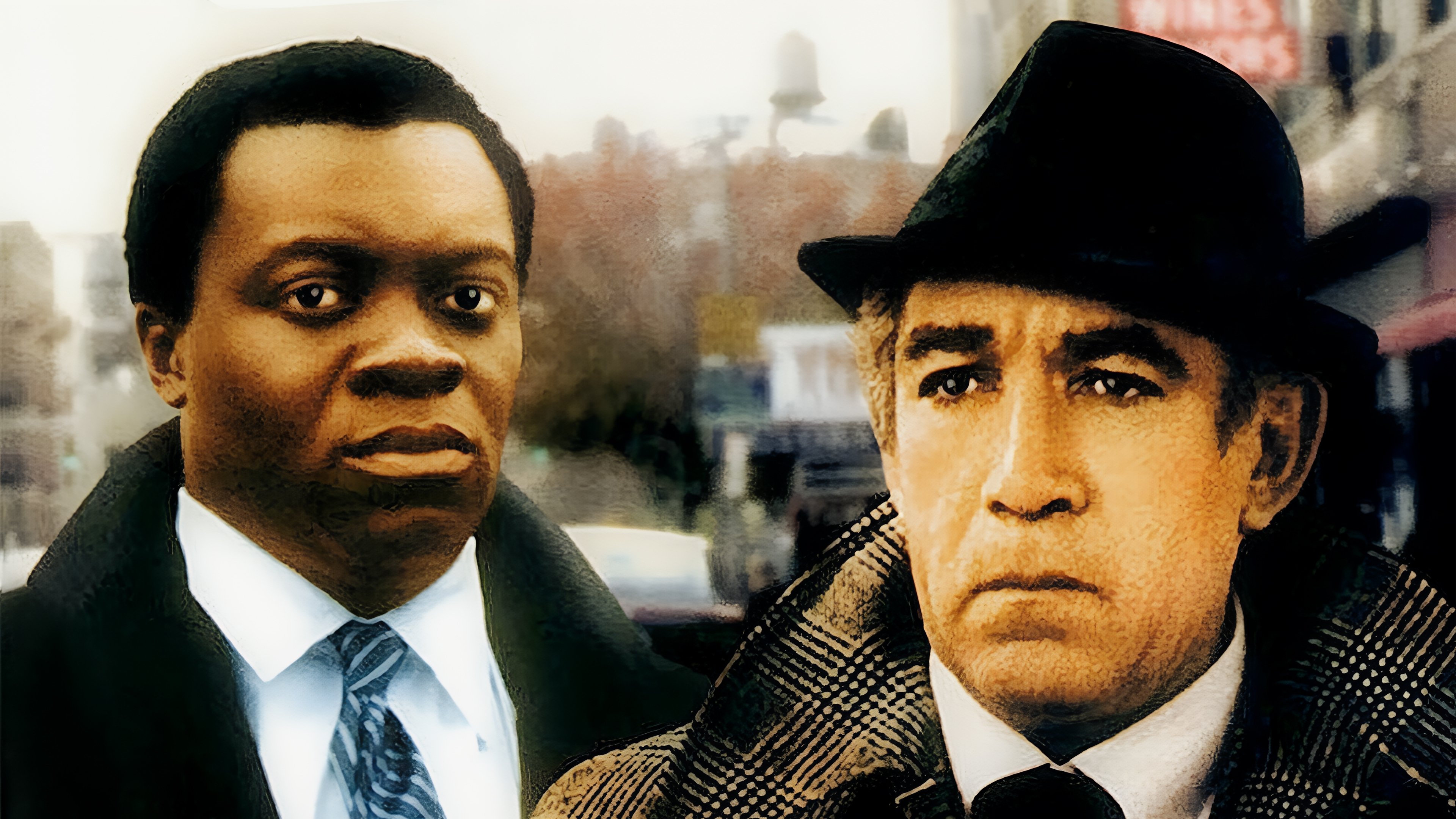
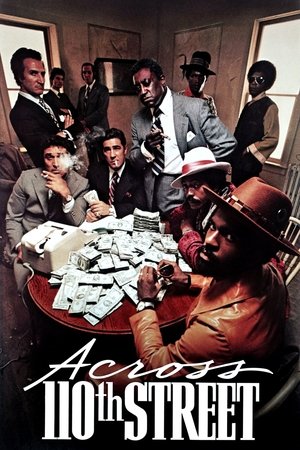
Across 110th Street
If you steal $300,000 from the mob, It's not robbery. It's suicide.
1972 • 1h 42min • ★ 6.776/10 • United States of America
Directed by: Barry Shear
Cast: Anthony Quinn, Yaphet Kotto, Anthony Franciosa, Paul Benjamin, Richard Ward
In a daring robbery, some $300,000 is taken from the Italian mob. Several mafiosi are killed, as are two policemen. Lt. Pope and Capt. Mattelli are two New York City cops trying to break the case. Three small-time criminals are on the run with the money. Will the mafia catch them first, or will the police?
Across 110th Street is a gritty crime drama that takes place in the heart of Harlem, New York City.
The film follows the lives of three men – a cop, a crook, and a mafia boss – as they navigate their way through the dangerous streets of the city.
The performances in this film are top-notch, with Anthony Quinn delivering a standout performance as the ruthless mafia boss, and Yaphet Kotto giving a powerful portrayal of a hardened criminal.
However, it is the late great actor, Paul Benjamin, who steals the show with his unforgettable performance as a small-time crook caught up in the middle of a violent turf war.
The film’s use of location and music is also worth noting.
The sound of Bobby Womack’s soulful “Across 110th Street” sets the tone for the film, while the grimy streets of Harlem serve as the perfect backdrop for the gritty crime drama.
No products found.
Sweet Sweetback’s Baadasssss Song (1971)
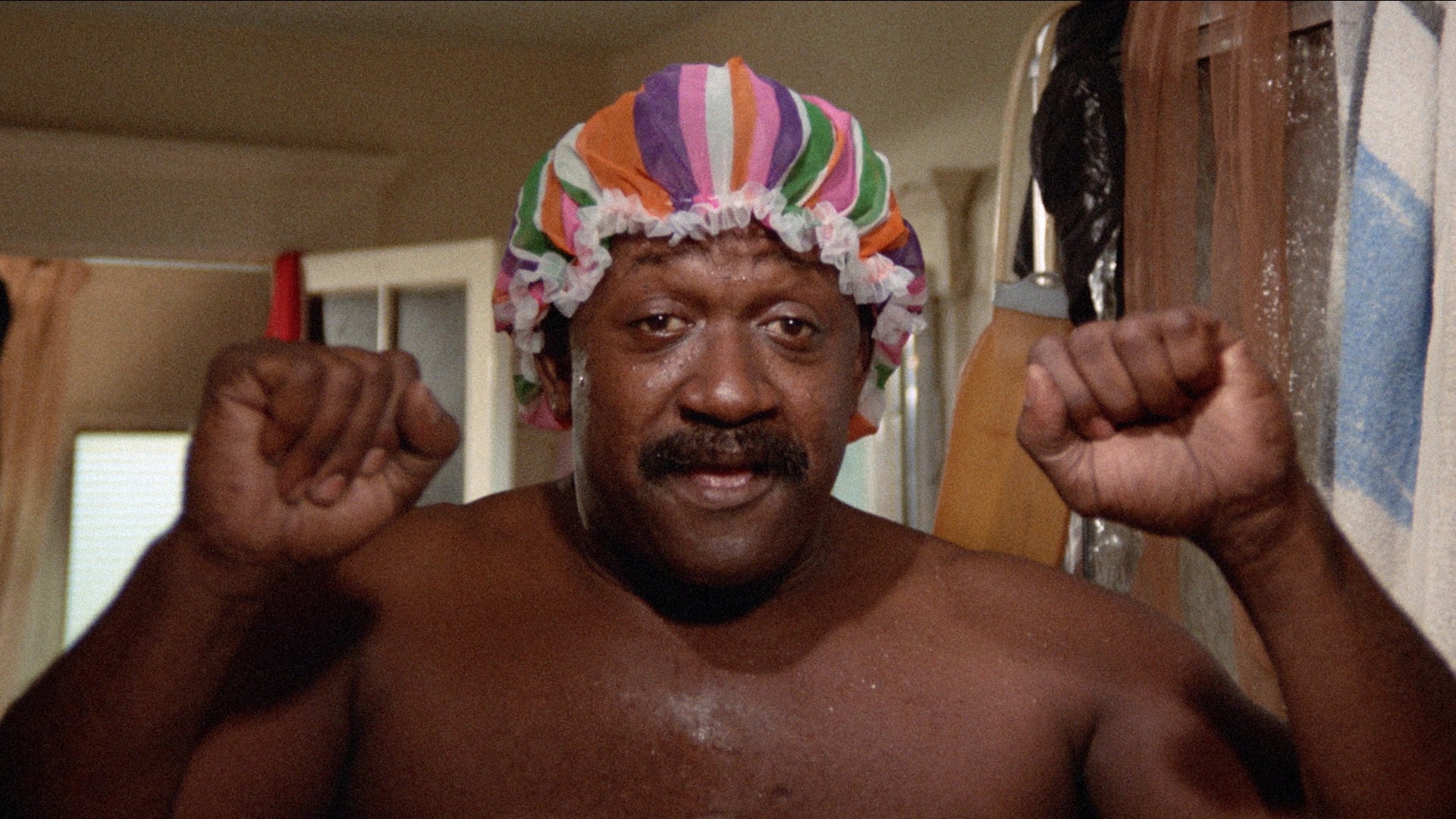
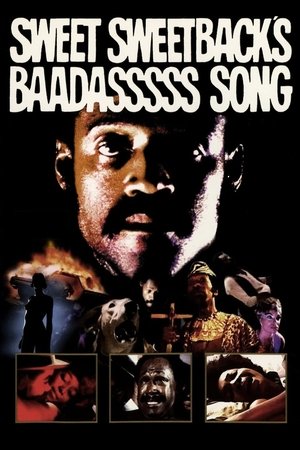
Sweet Sweetback's Baadasssss Song
The Film that THE MAN doesn't want you to see!
1971 • 1h 38min • ★ 5.212/10 • United States of America
Directed by: Melvin Van Peebles
Cast: Simon Chuckster, Melvin Van Peebles, Hubert Scales, Mario Van Peebles, John Dullaghan
After saving a Black Panther from some racist cops, a black male prostitute goes on the run from "the man" with the help of the ghetto community and some disillusioned Hells Angels.
Across 110th Street is a gritty crime drama that takes place in the heart of Harlem, New York City.
The film follows the lives of three men – a cop, a crook, and a mafia boss – as they navigate their way through the dangerous streets of the city.
The performances in this film are top-notch, with Anthony Quinn delivering a standout performance as the ruthless mafia boss, and Yaphet Kotto giving a powerful portrayal of a hardened criminal.
However, it is the late great actor, Paul Benjamin, who steals the show with his unforgettable performance as a small-time crook caught up in the middle of a violent turf war.
The film’s use of location and music is also worth noting.
The sound of Bobby Womack’s soulful “Across 110th Street” sets the tone for the film, while the grimy streets of Harlem serve as the perfect backdrop for the gritty crime drama.
- Melvin Van Peebles, Simon Chuckster, Hubert Scales (Actors)
- Melvin Van Peebles (Director)
- English (Subtitle)
- Audience Rating: R (Restricted)
Super Fly (1972)
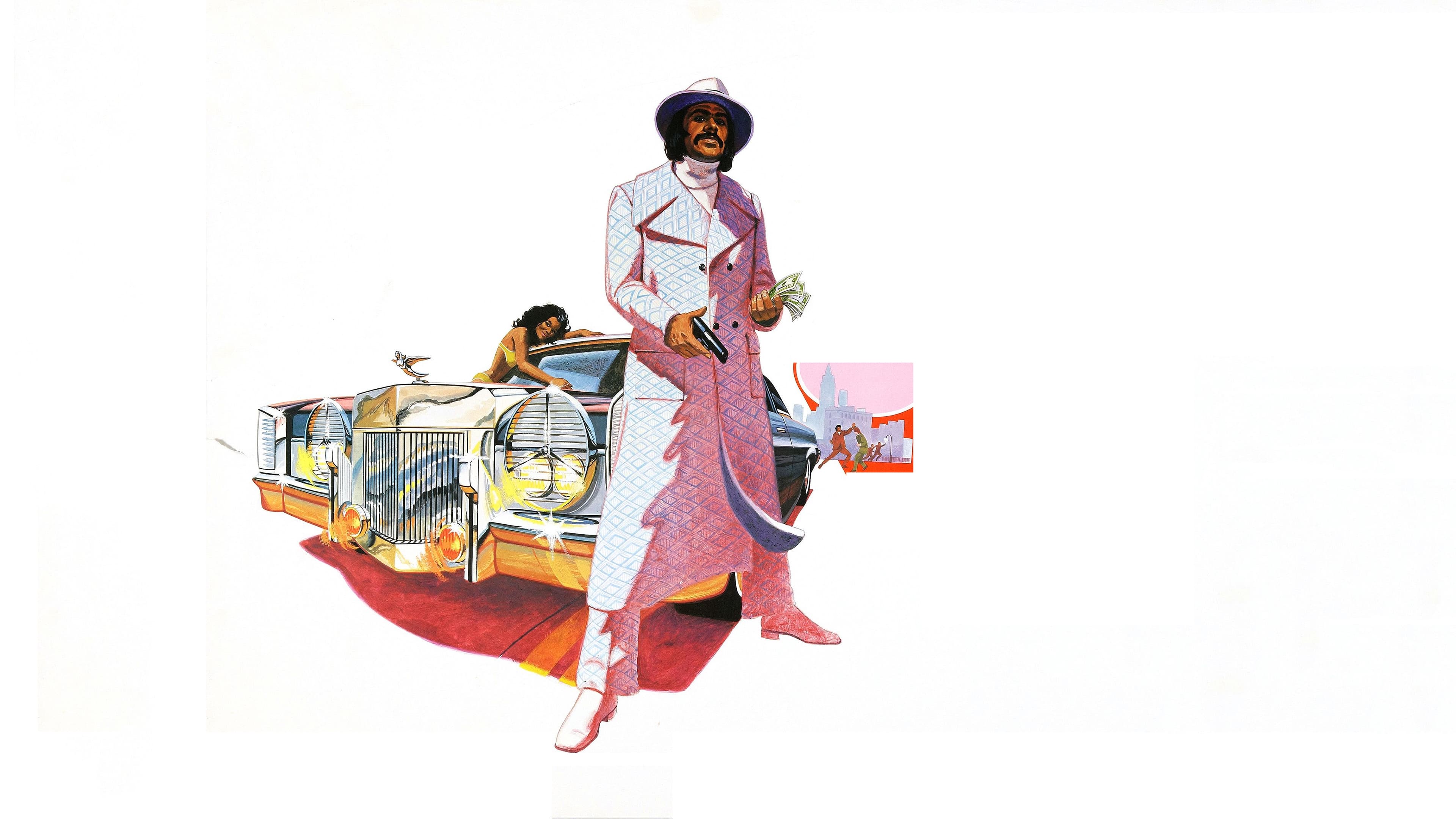
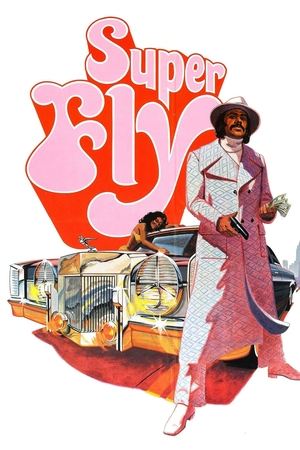
Super Fly
Never a dude like this one! He's got a plan to stick it to The Man!
1972 • 1h 31min • ★ 6.257/10 • United States of America
Directed by: Gordon Parks Jr.
Cast: Ron O'Neal, Carl Lee, Sheila Frazier, Charles McGregor, Julius Harris
Priest, a suave top-rung New York City drug dealer, decides that he wants to get out of his dangerous trade. Working with his reluctant friend, Eddie, Priest devises a scheme that will allow him to make a big deal and then retire. When a desperate street dealer informs the police of Priest's activities, Priest is forced into an uncomfortable arrangement with corrupt narcotics officers. Setting his plan in motion, he aims to both leave the business and stick it to the man.
Super Fly is a classic blaxploitation film that has become a cult favorite over the years.
Directed by Gordon Parks Jr. and starring Ron O’Neal as the titular character, Super Fly tells the story of a cocaine dealer who is looking to make one last big score before getting out of the game for good.
What sets this film apart from other blaxploitation movies of the era is its stylish direction and excellent soundtrack by Curtis Mayfield.
The film is a gritty and realistic portrayal of life in the inner city, with O’Neal’s performance as the cool and collected drug dealer being a standout.
The film’s themes of power, corruption, and redemption are still relevant today, and its influence can be seen in countless films and TV shows that have followed in its footsteps.
While some may criticize Super Fly for glorifying drug use, it ultimately serves as a cautionary tale about the dangers of the drug trade and the harsh realities of life in the inner city.
- Amazon Prime Video (Video on Demand)
- Ron O'Neal, Carl Lee, Sheila Frazier (Actors)
- Gordon Parks (Director) - Phillip Fenty (Writer) - Sig Shore (Producer)
- Audience Rating: R (Restricted)
Foxy Brown (1974)
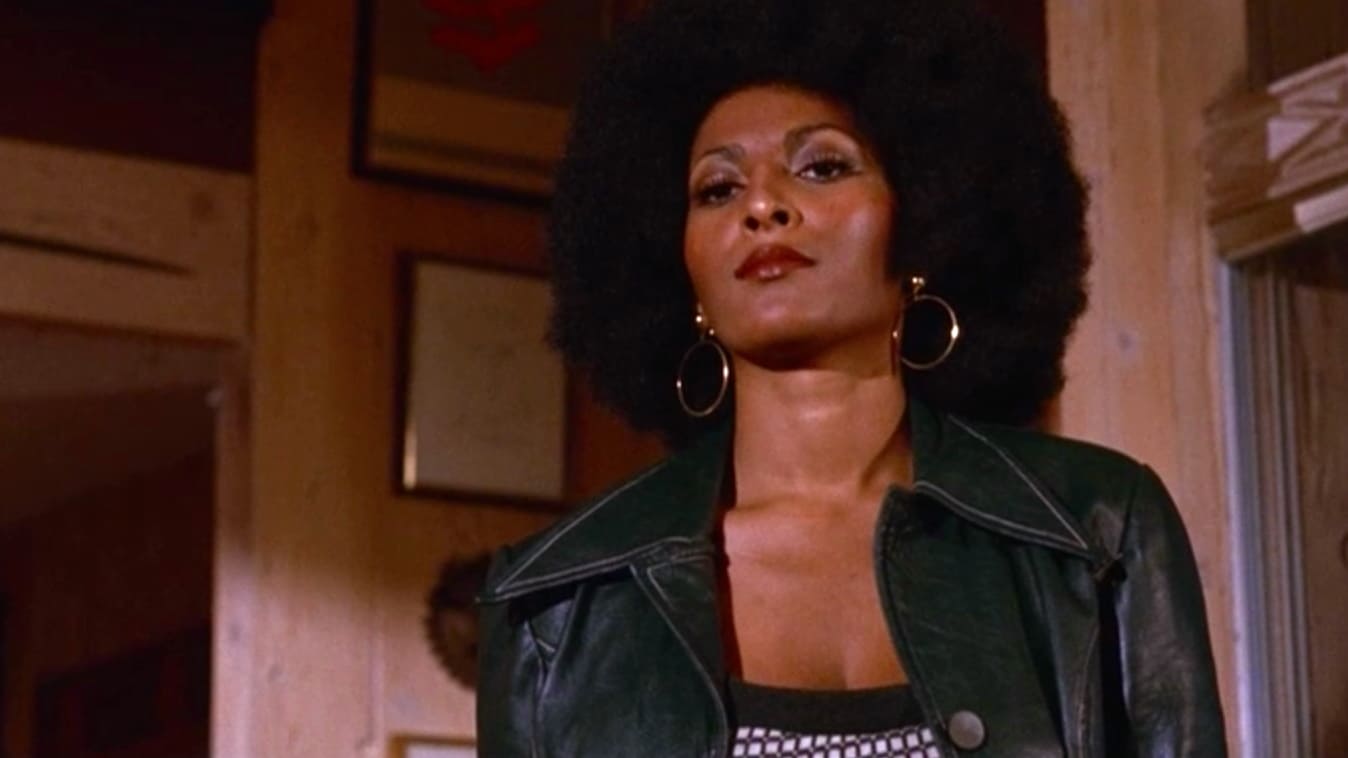
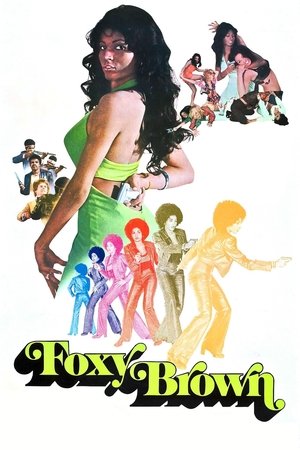
Foxy Brown
A chick with drive who don't take no jive!
1974 • 1h 34min • ★ 6.229/10 • United States of America
Directed by: Jack Hill
Cast: Pam Grier, Antonio Fargas, Peter Brown, Terry Carter, Kathryn Loder
A voluptuous black woman takes a job as a high-class prostitute in order to get revenge on the mobsters who murdered her boyfriend.
Foxy Brown is a classic blaxploitation film that packs a punch from start to finish. Pam Grier stars as the titular character, a strong and sexy woman seeking revenge after her boyfriend is murdered by a drug syndicate.
The film is filled with action, violence, and some truly memorable one-liners.
Director Jack Hill does an excellent job of capturing the gritty and dangerous world of the 1970s, and Grier’s performance as Foxy is truly iconic.
The film also features some great supporting performances, particularly from Antonio Fargas as the flamboyant and villainous Link Brown.
While some may find the portrayal of women and the use of racial stereotypes problematic, Foxy Brown remains an important and influential film in the blaxploitation genre.
No products found.
Shaft (1971)
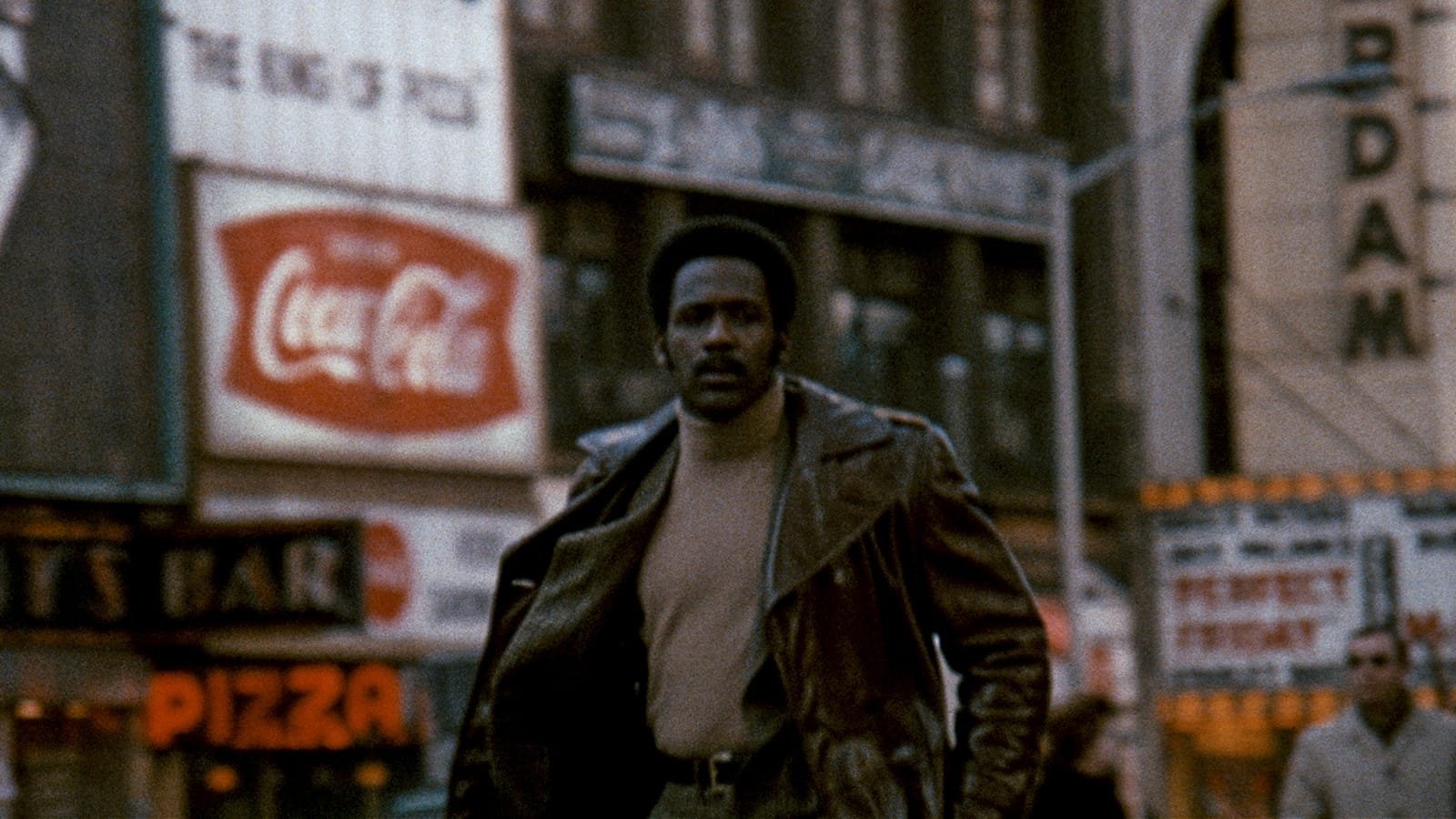
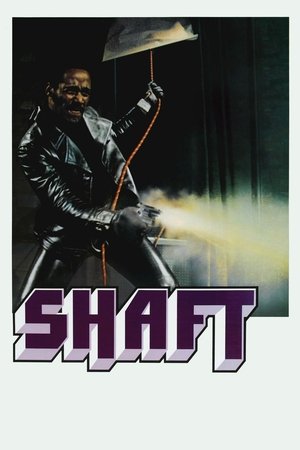
Shaft
The mob wanted Harlem back. They got Shaft...up to here.
1971 • 1h 40min • ★ 6.405/10 • United States of America
Directed by: Gordon Parks
Cast: Richard Roundtree, Moses Gunn, Charles Cioffi, Christopher St. John, Gwenn Mitchell
Cool Black private eye John Shaft is hired by a crime lord to find and retrieve his kidnapped daughter.
“Shaft” is an iconic film that has stood the test of time.
This gritty, action-packed crime drama is a classic that paved the way for the blaxploitation genre in the 1970s.
Richard Roundtree delivers a dynamic performance as John Shaft, a private detective who is hired by a Harlem crime boss to find his daughter, who has been kidnapped.
The film’s soundtrack, composed by Isaac Hayes, is unforgettable and became a hit in its own right.
Director Gordon Parks captures the energy and spirit of the era, showcasing the vibrant culture of Harlem and the struggles of its residents.
While the film does have some dated elements, “Shaft” remains a gripping and thrilling ride.
The action scenes are intense, and Roundtree’s cool and confident portrayal of Shaft is captivating.
The film’s themes of racial injustice and police corruption are still relevant today, making “Shaft” a timeless classic.
- Amazon Prime Video (Video on Demand)
- Richard Roundtree, Moses Gunn, Gwenn Mitchell (Actors)
- Gordon Parks (Director) - Ernest Tidyman (Writer) - David Golden (Producer)
- Audience Rating: R (Restricted)
The Mack (1973)
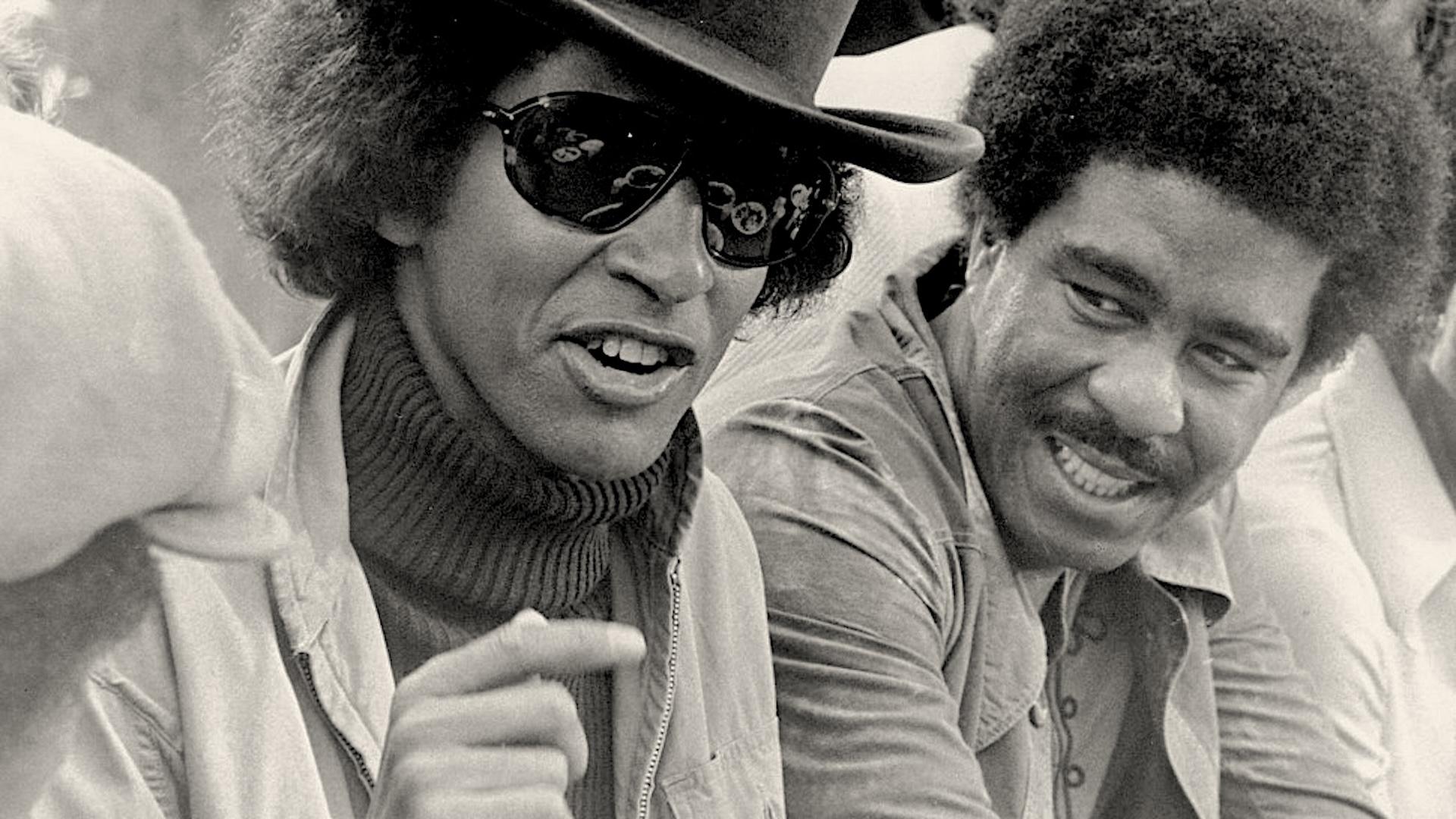
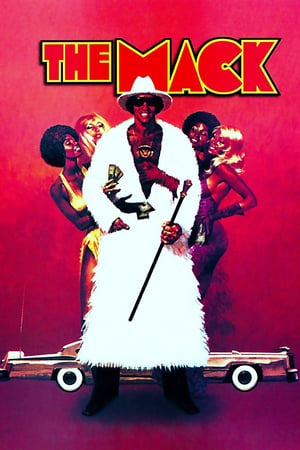
The Mack
There's a new kind of hero on the streets!
1973 • 1h 50min • ★ 6.533/10 • United States of America
Directed by: Michael Campus
Cast: Max Julien, Don Gordon, Richard Pryor, Carol Speed, George Murdock
Goldie returns from five years at the state pen and winds up king of the pimping game. Trouble comes in the form of two corrupt white cops and a crime lord who wants him to return to the small time.
“The Mack” is a gritty and unapologetic blaxploitation film that takes us on a journey through the seedy underbelly of Oakland’s criminal underworld.
The story follows Goldie (Max Julien), a charismatic young man recently released from prison, as he navigates the dangerous world of pimping and drug dealing in an effort to make a name for himself and help his struggling family.
The film is a fascinating snapshot of the time period, with its bold fashion choices, funky soundtrack, and unflinching portrayal of the violence and corruption that plagued inner-city communities.
Julien delivers a standout performance as Goldie, commanding the screen with his raw charisma and swagger.
While the film does have its share of problematic elements, including its portrayal of women and its glorification of illegal activities, it ultimately succeeds in capturing the spirit of the era and delivering an entertaining and thought-provoking viewing experience.
- Amazon Prime Video (Video on Demand)
- Max Julien, Don Gordon, Richard Pryor (Actors)
- Michael Campus (Director) - Robert J. Poole (Writer) - Harvey Bernhard (Producer)
- English (Playback Language)
- English (Subtitle)
The Best Blaxploitation Films That Helped Defined The Genre
The blaxploitation era lasted from the late 1960s to the mid-1970s, but there are still films being made today. These movies were not only entertaining for audiences, but they also helped define an era.”
Blaxploitation films are a subgenre of exploitation films that emerged in the early 1970s.
They were generally released by black filmmakers for an urban audience and featured large numbers of African-Americans in starring roles, usually as criminals or gangsters.
The genre was chiefly characterized by having black actors play characters who are streetwise, self-sufficient, and sexually aggressive.
These films offered both an alternative to popular Hollywood fare and a way for social messages to be communicated through cinema.
The 1970s was an interesting time for film. It was the era of blaxploitation films, which were often low-budget exploitation movies aimed at depicting black people as strong and heroic.
These films helped shape a new generation of African American filmmakers that would go on to create some of Hollywood’s most defining moments.
They also gave birth to a slew of memorable characters such as John Shaft, Foxy Brown, Coffy, and Boss Hog – all who had their own unique struggles with trying to live in America while being black or female.
Blaxploitation Horror Movies
Did you know that there are horror movies released in the 1970s? They were called blaxploitation and they tended to be more violent than your average horror movie.
Blaxploitation horror movies typically had strong female leads who would fight back against their attackers with whatever weapon they could find (such as guns).
They also frequently featured scenes involving nudity or other sexual activity; this may be because sex was considered taboo at the time, but it still made for interesting viewing.
I’ve compiled a list of some of the best blaxploitation horror movies from this era for you below. Let me know which one is your favorite!
Ready to learn about more Film History & Film Movements?
Matt Crawford
Related posts
2 Comments
Leave a Reply Cancel reply
This site uses Akismet to reduce spam. Learn how your comment data is processed.













![Cooley High [Blu-ray]](https://m.media-amazon.com/images/I/41REOZDhHiL.jpg)



![The Spook Who Sat By the Door [DVD]](https://m.media-amazon.com/images/I/51G+ZEfIVQL.jpg)




![Sweet Sweetback's Baadasssss Song [Blu-ray/DVD Combo]](https://m.media-amazon.com/images/I/51rKV2KXx5L.jpg)




Nice site man Ive been looking everywhere for something like this! Love me some Blaxploitation cinema!
Thanks!